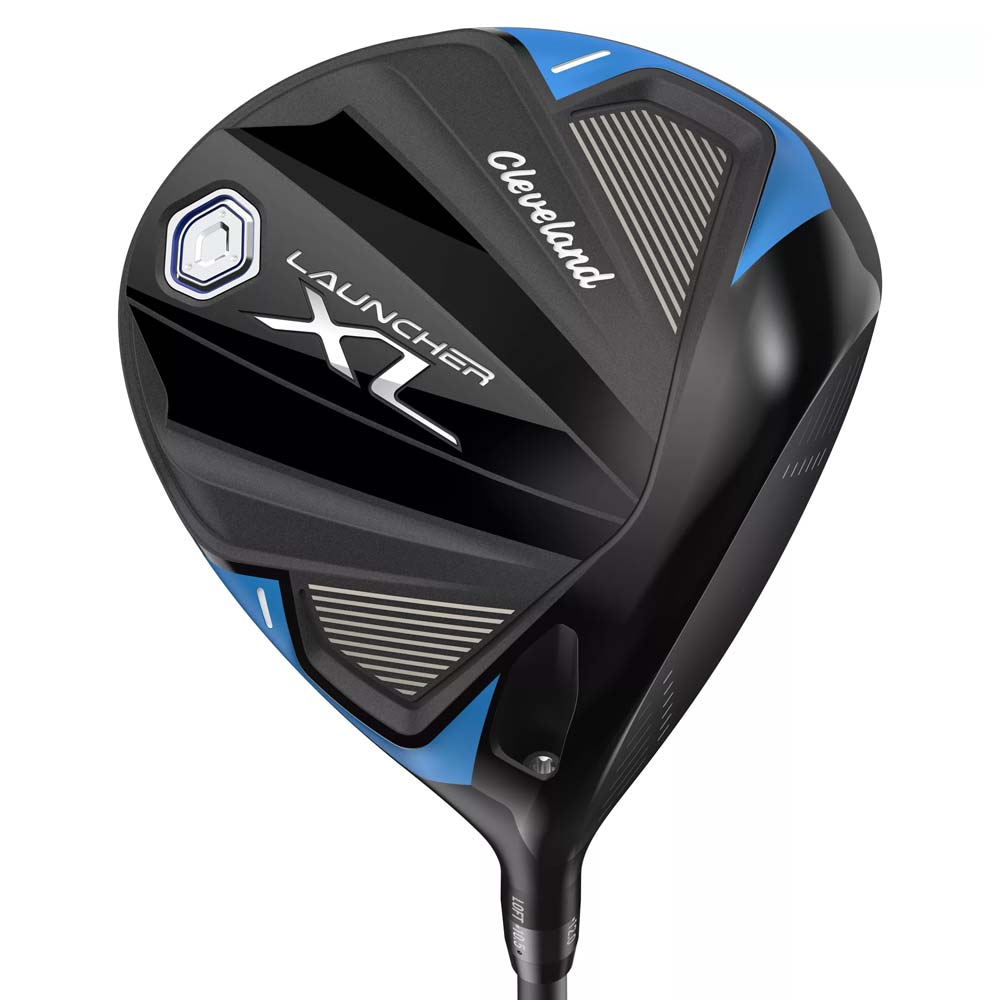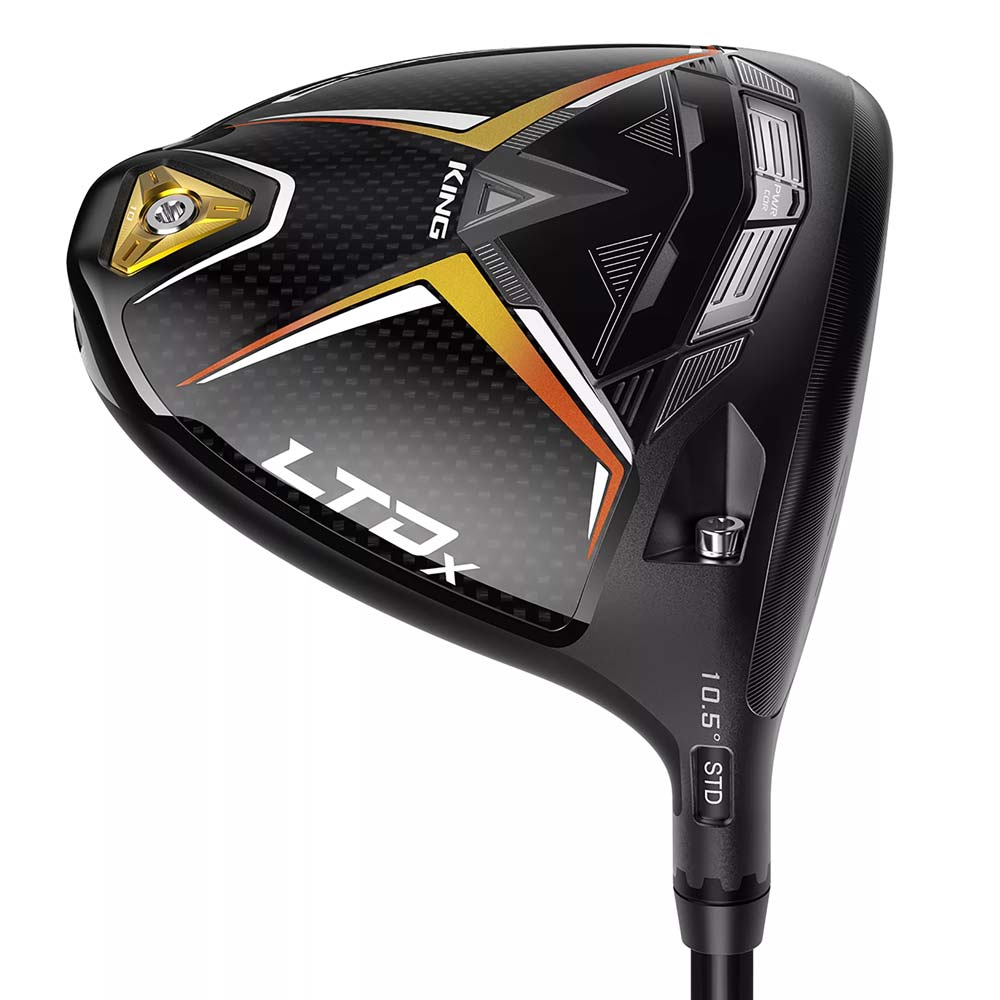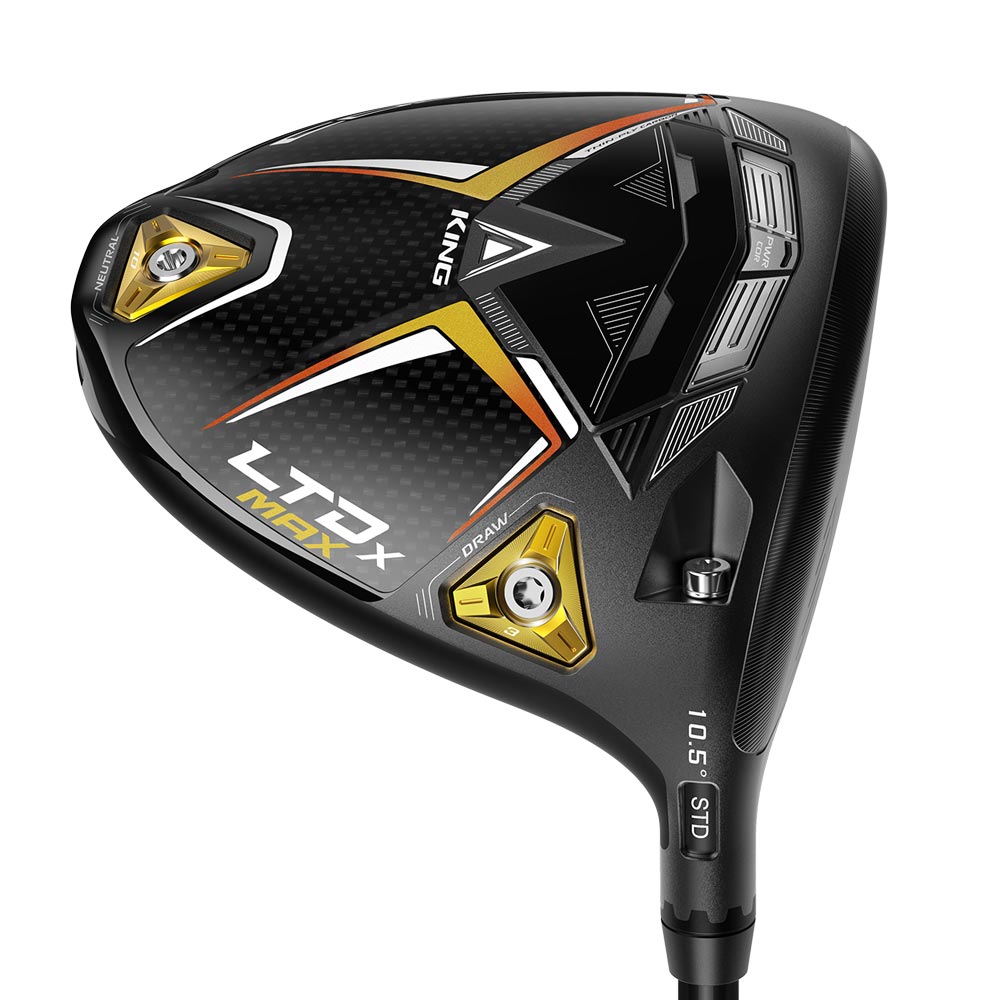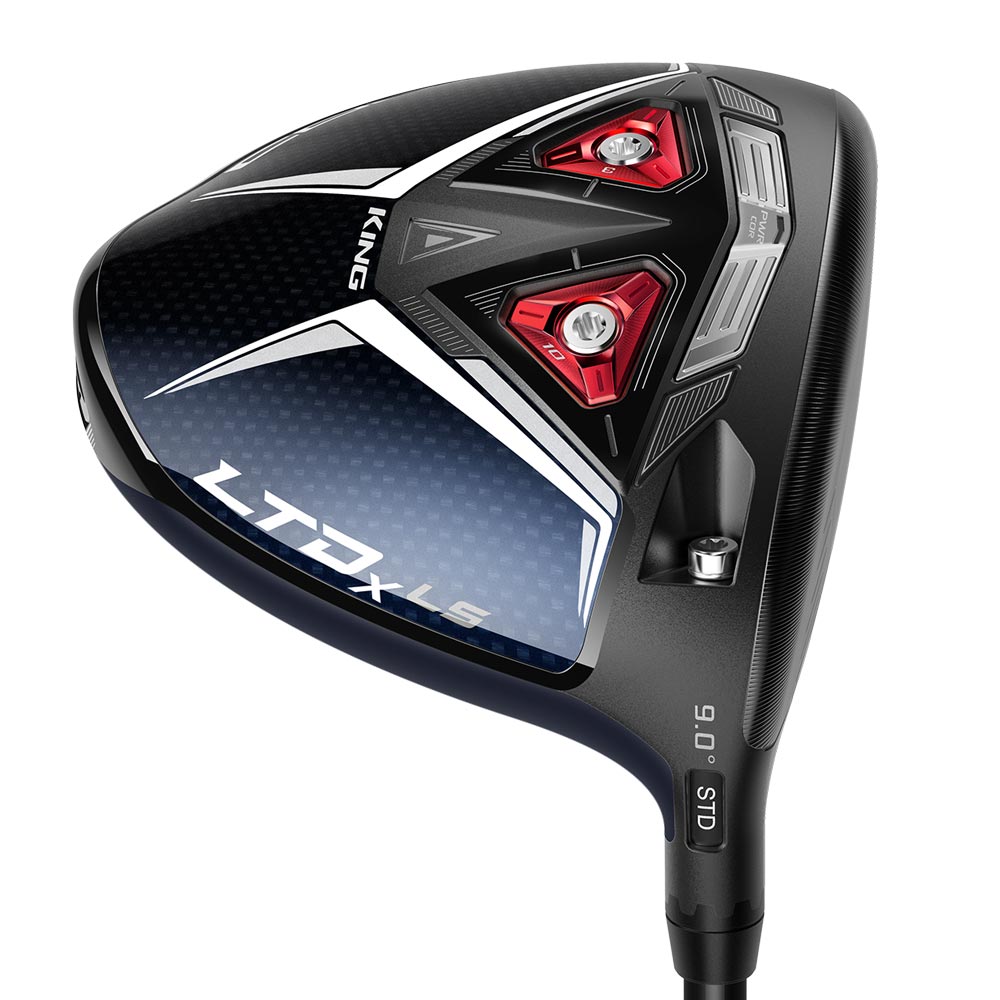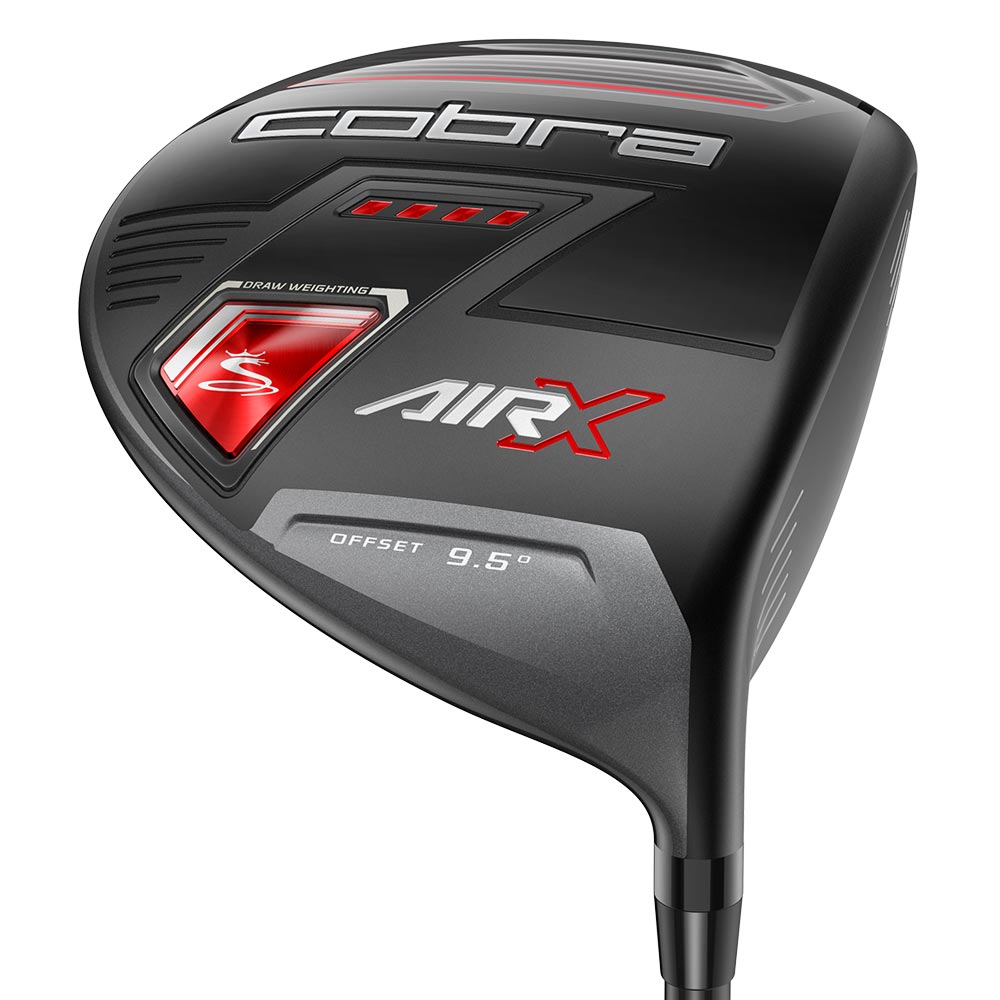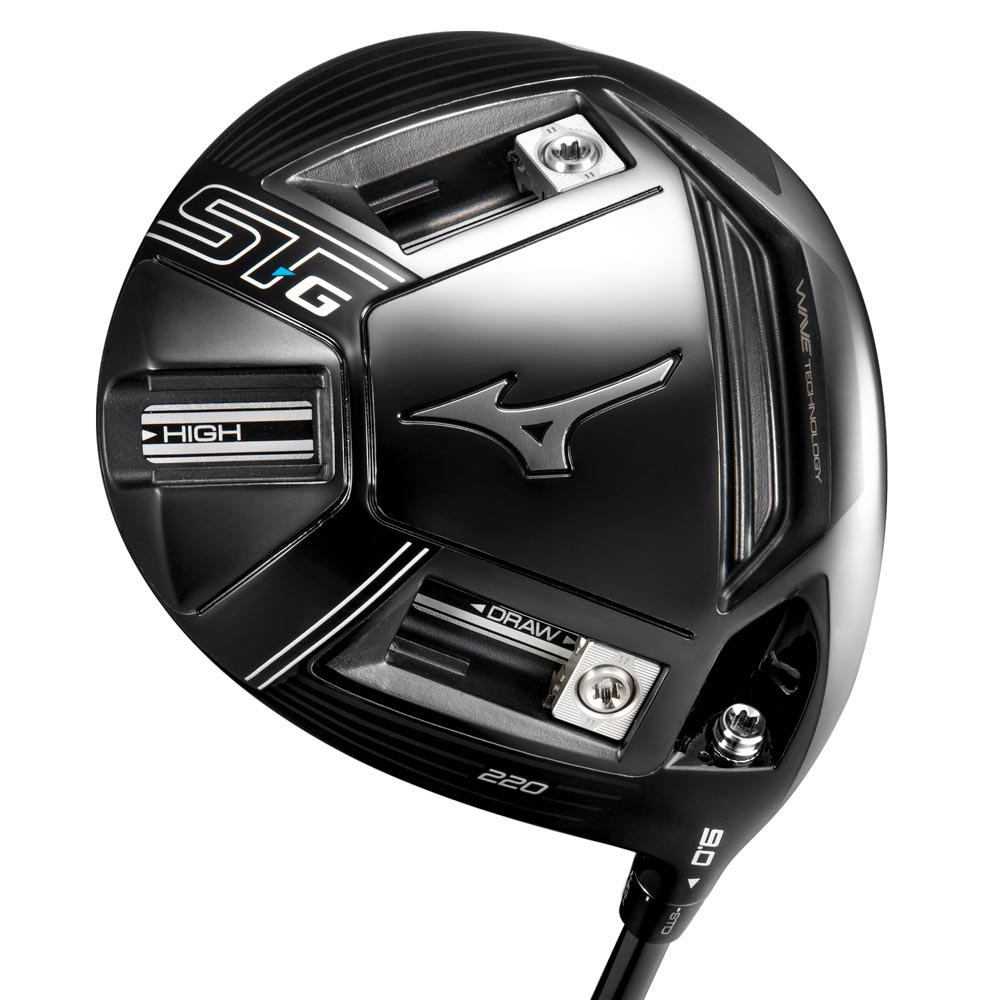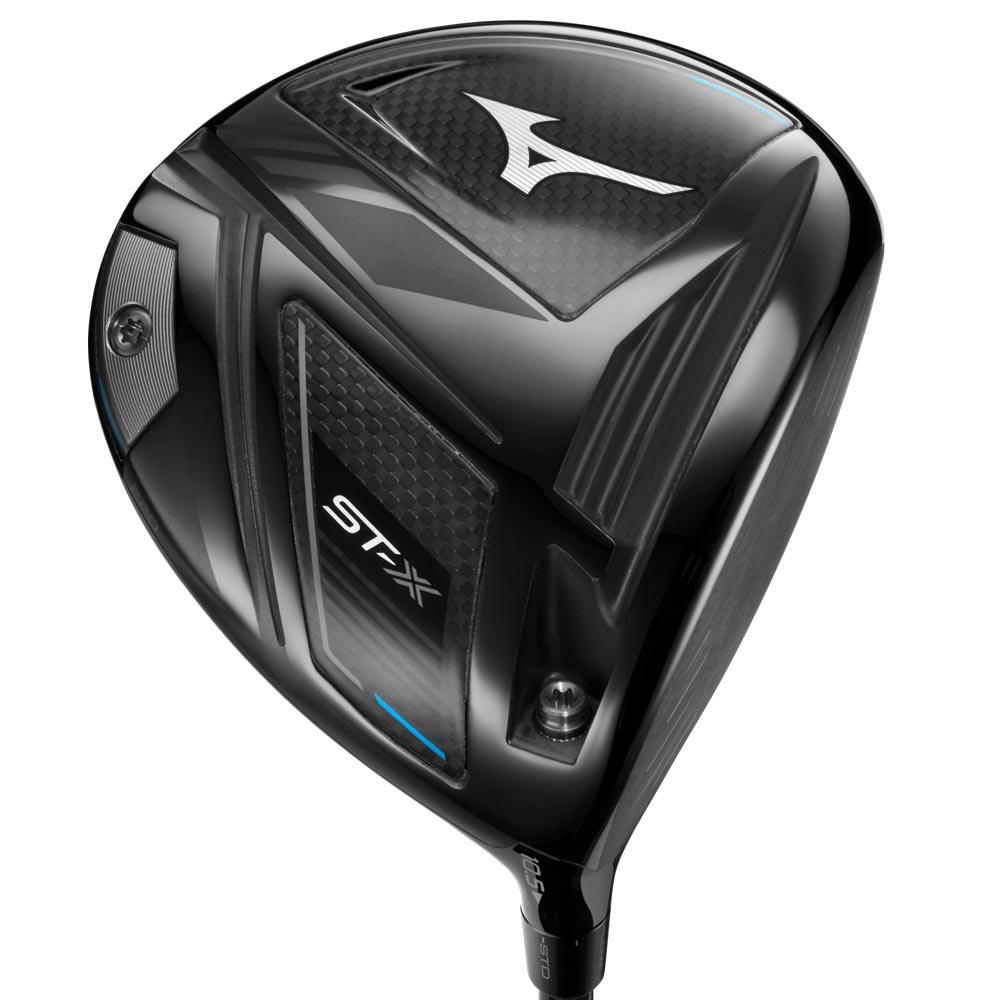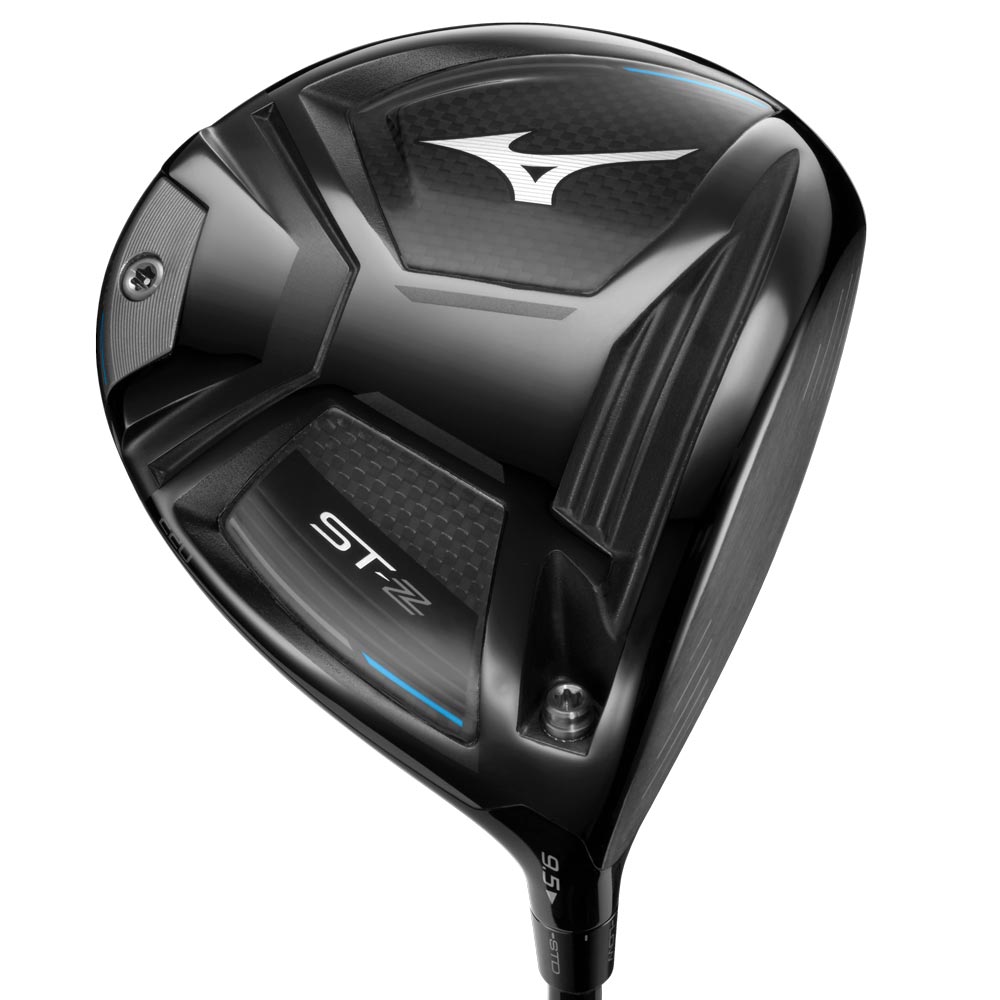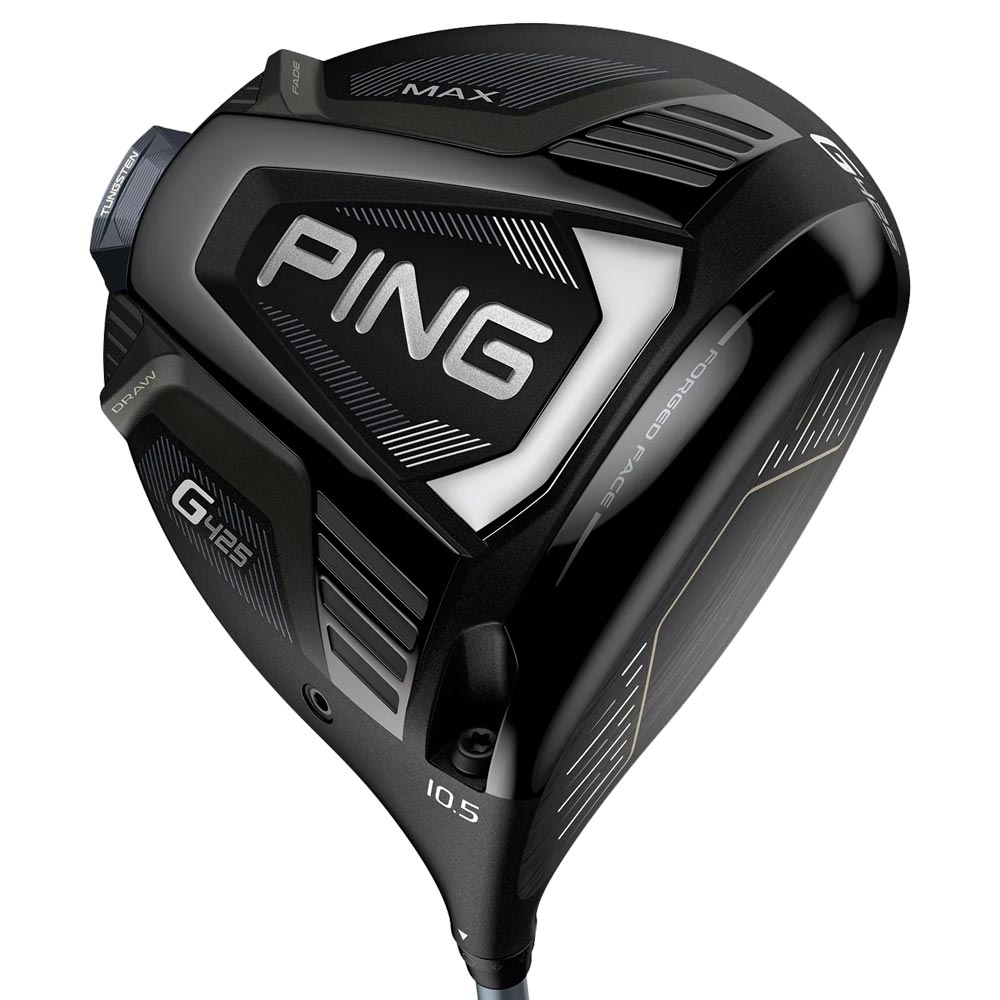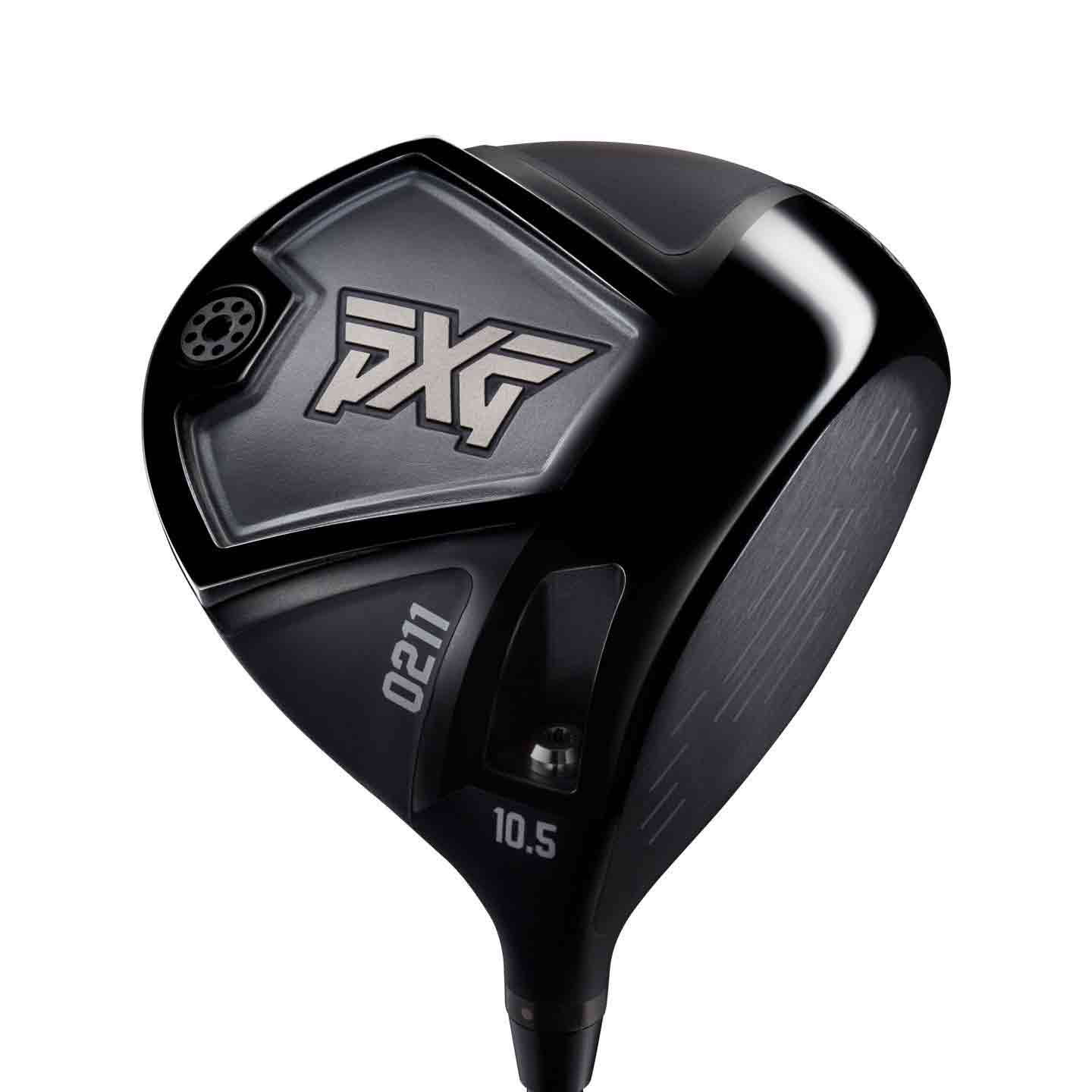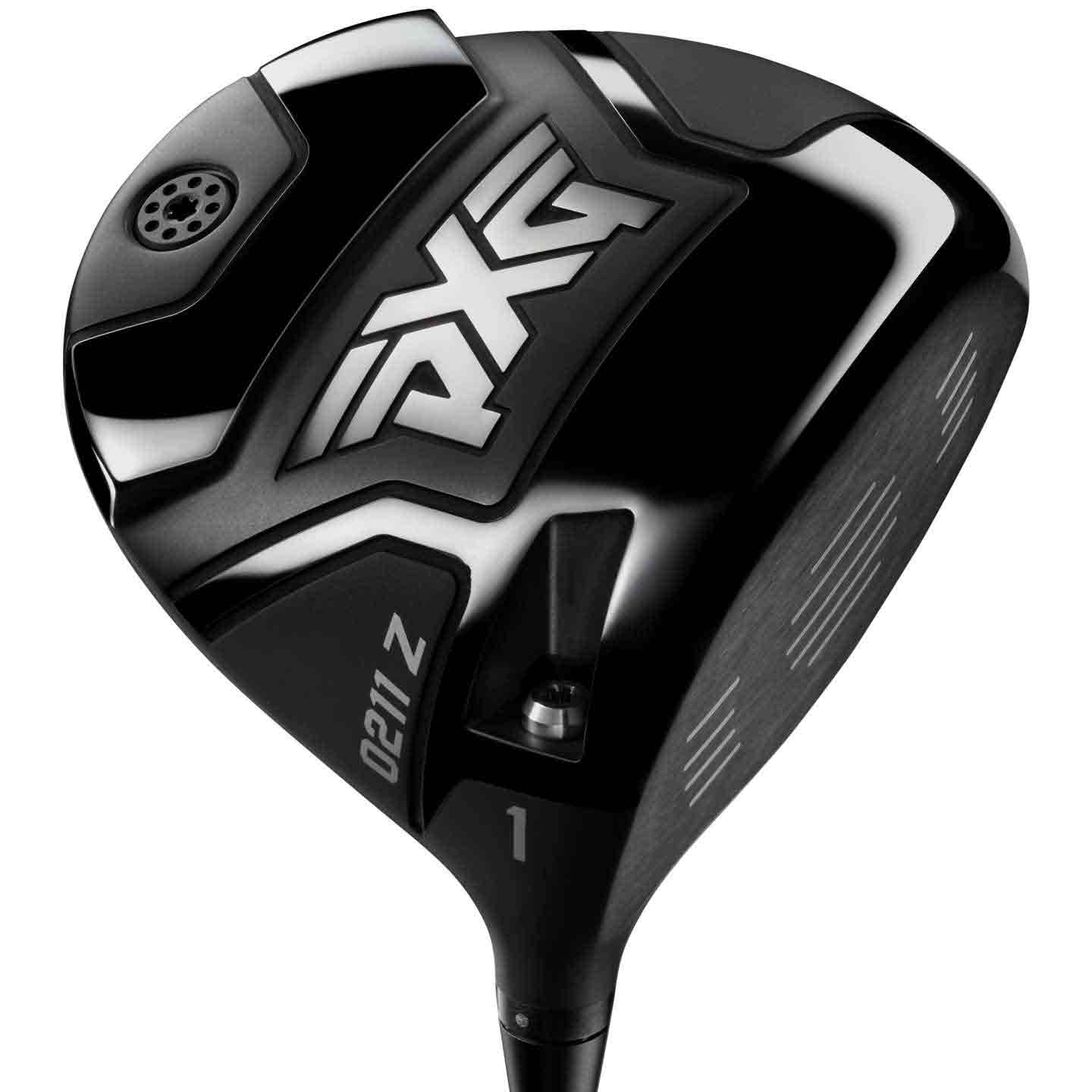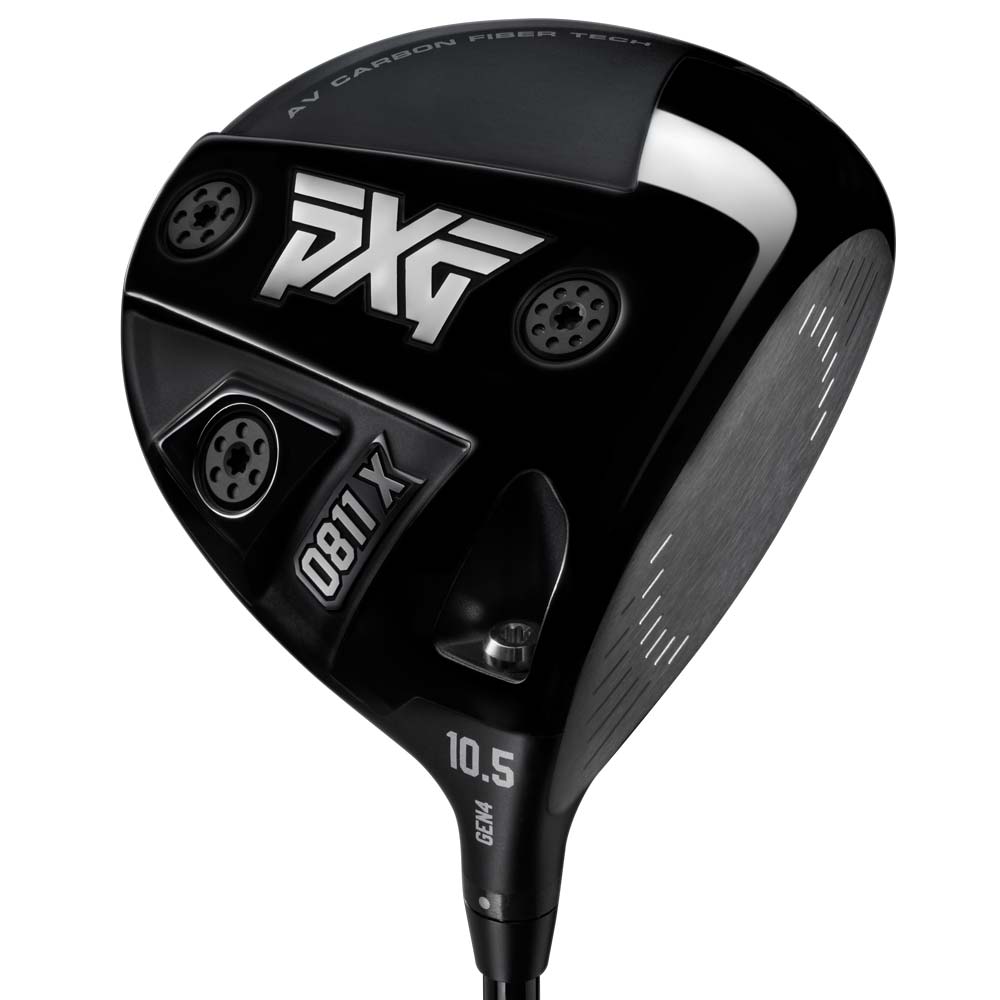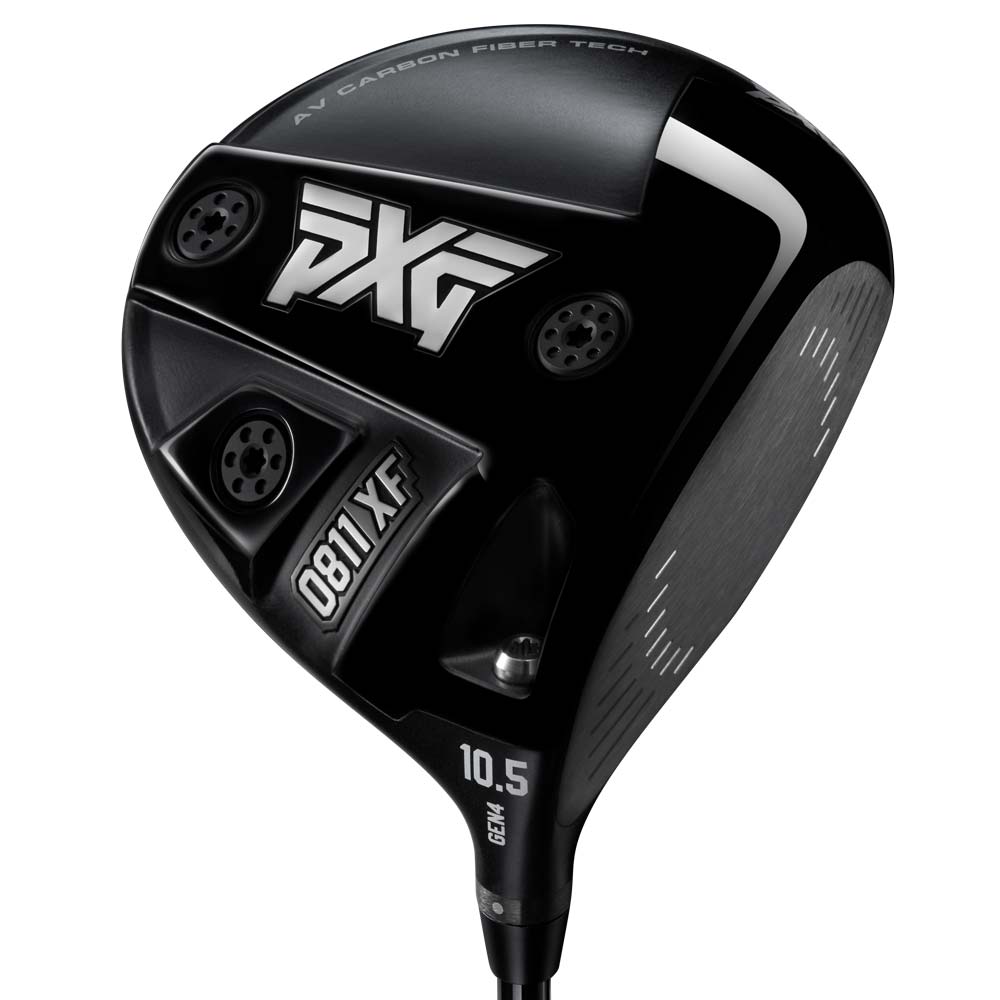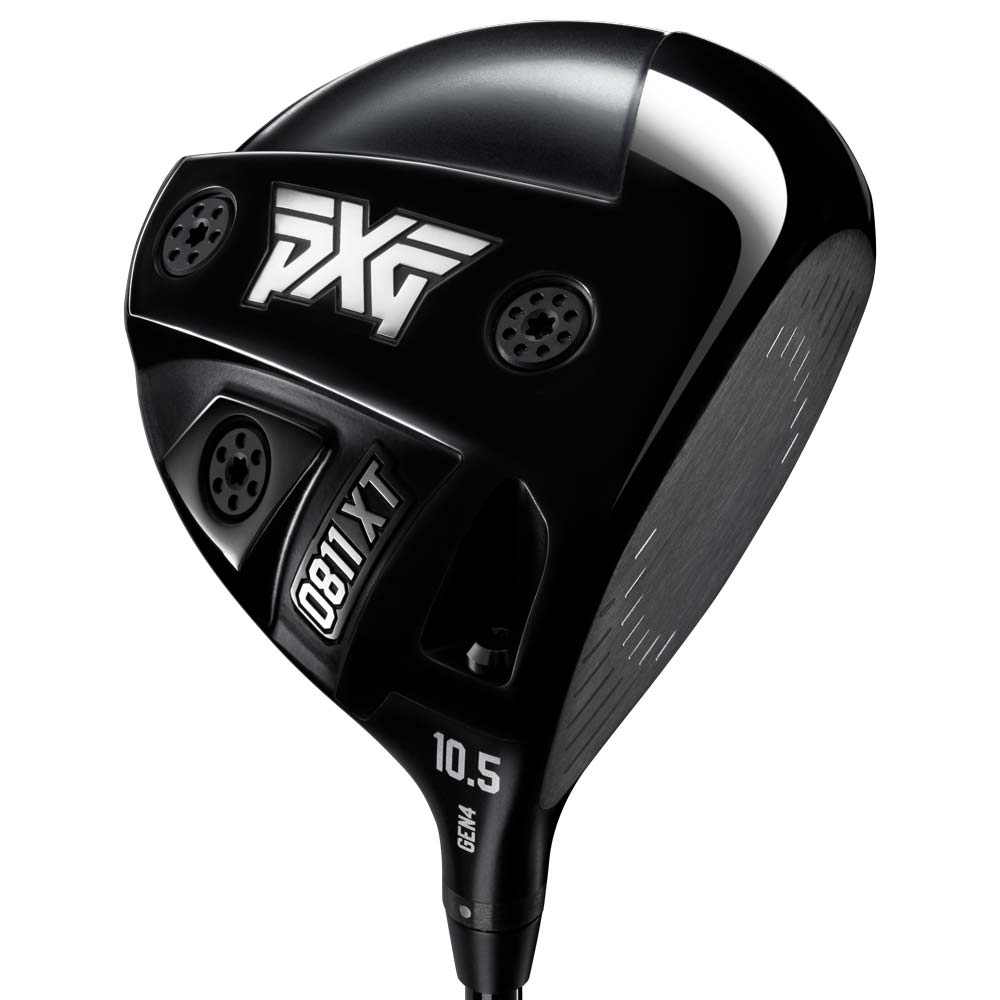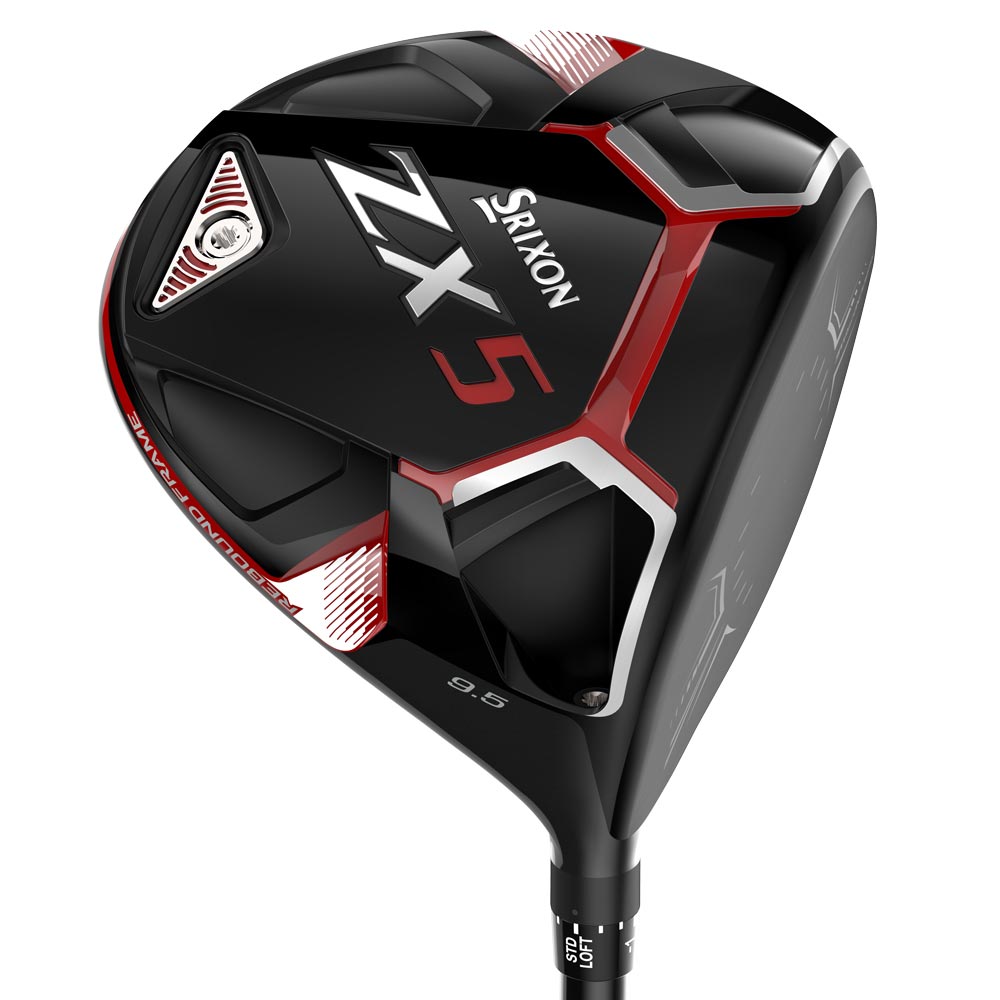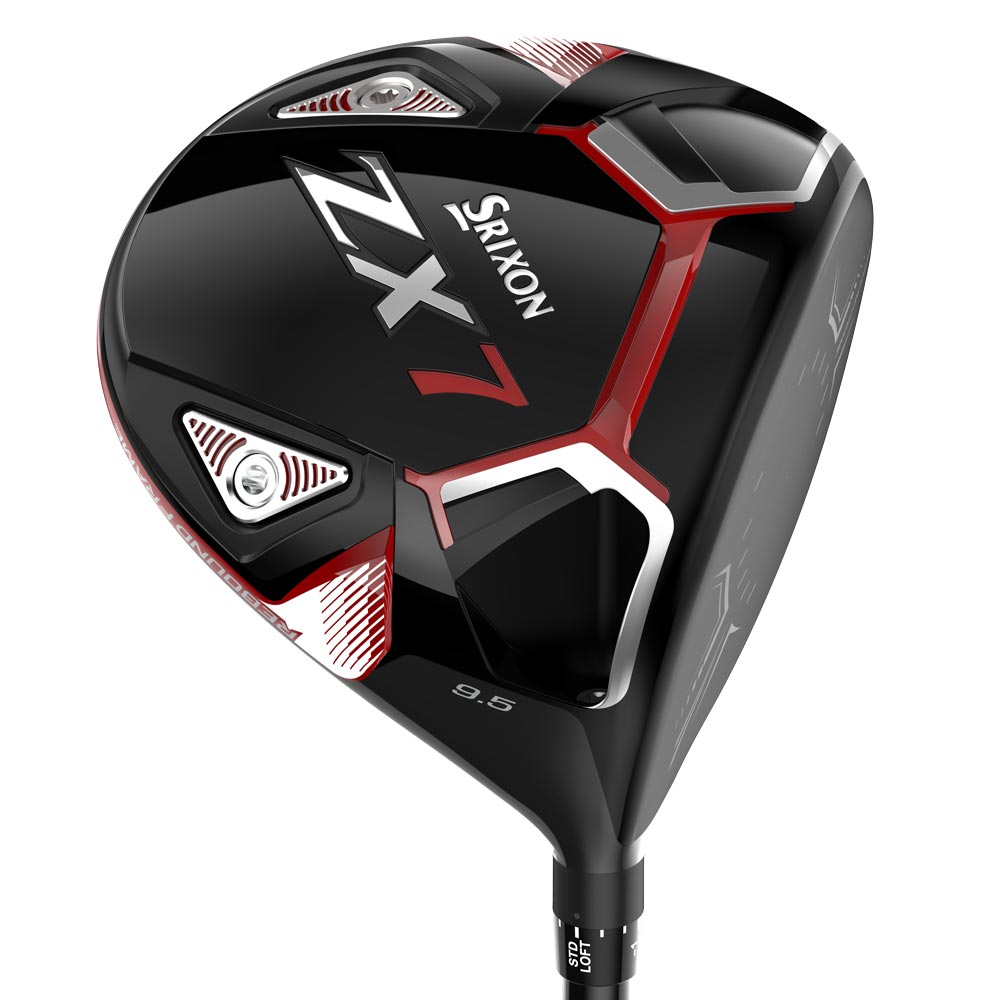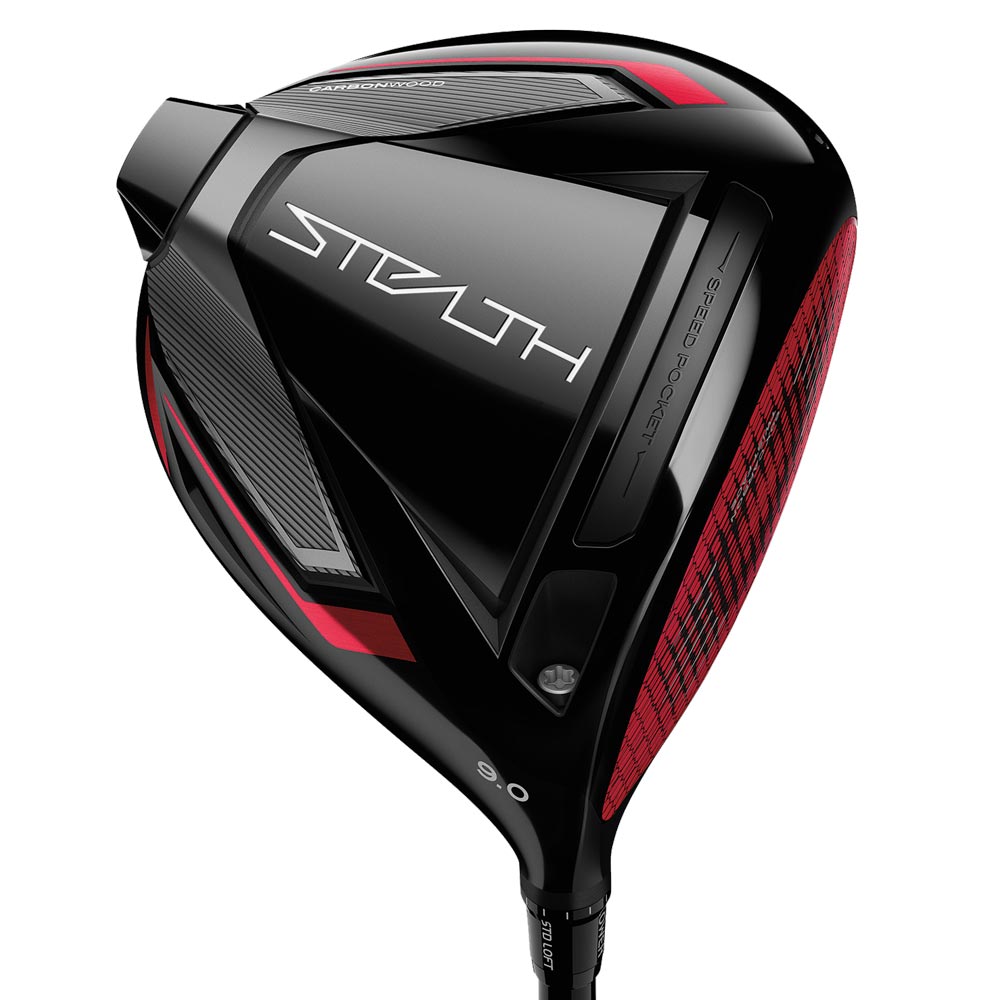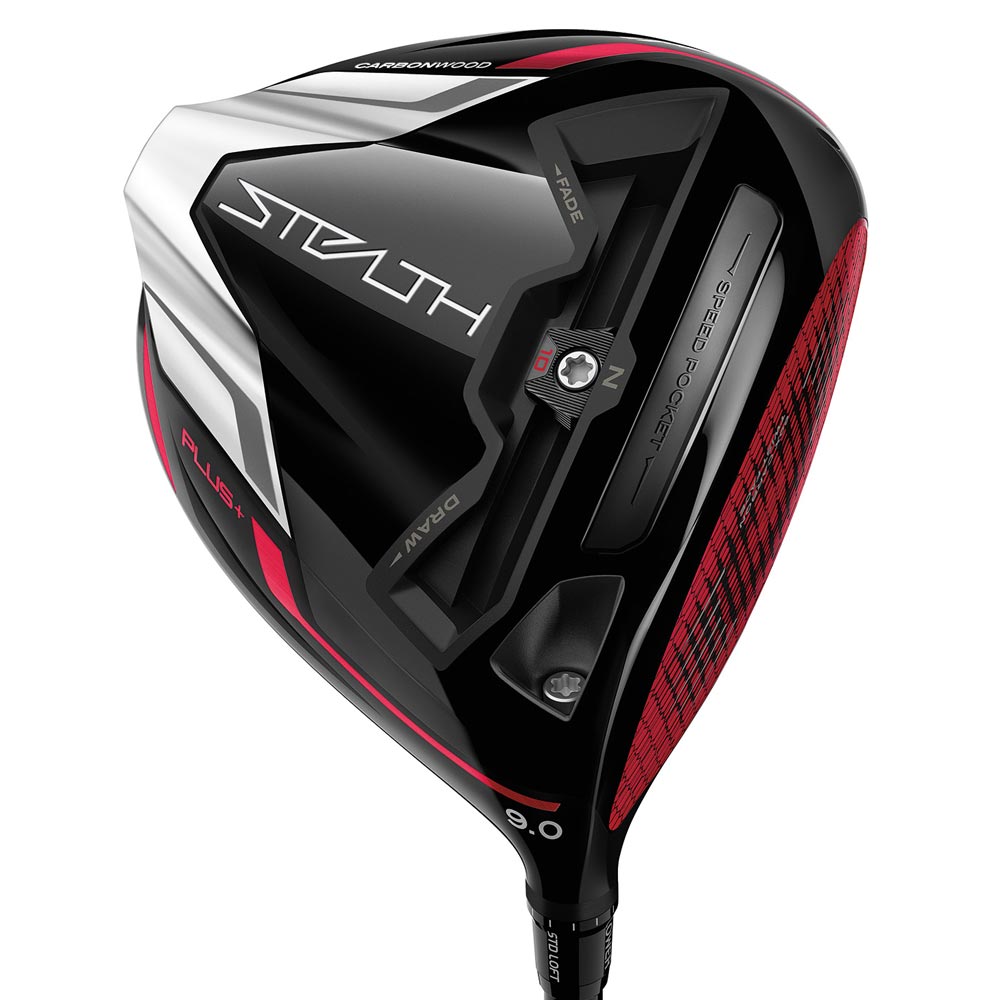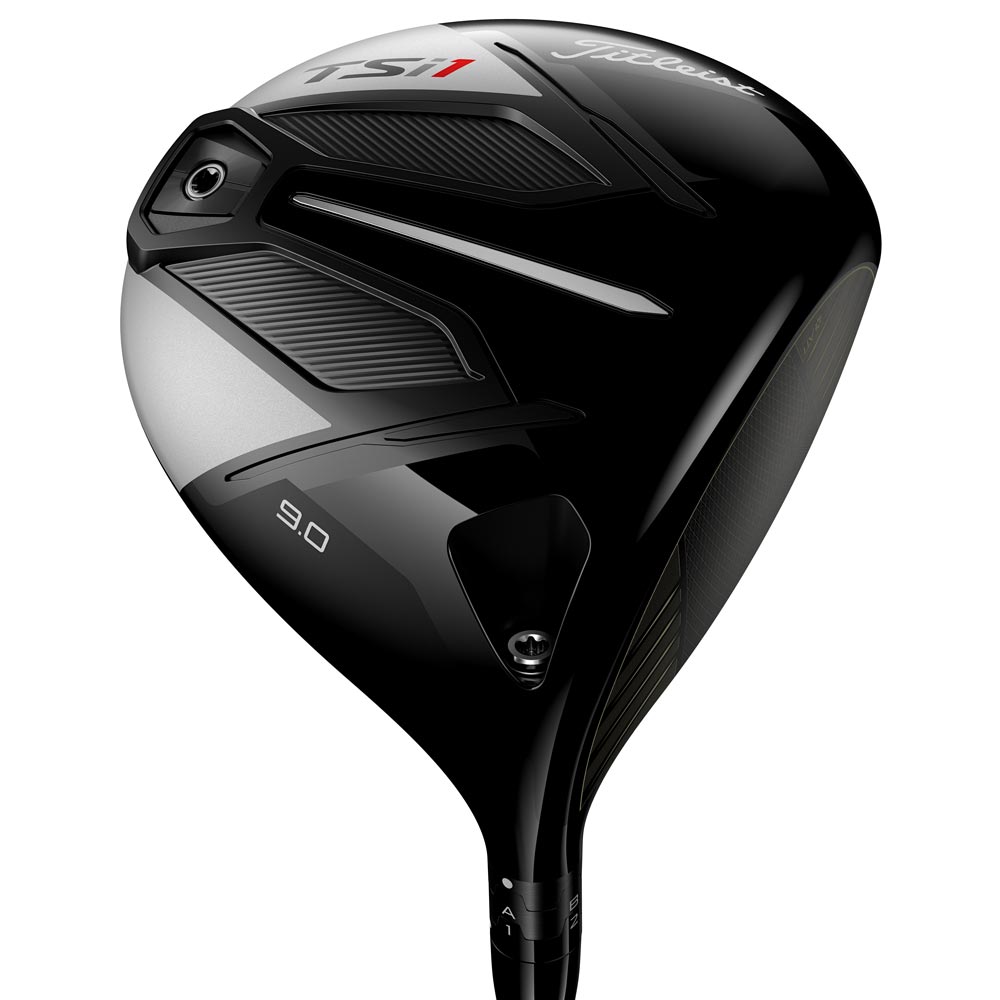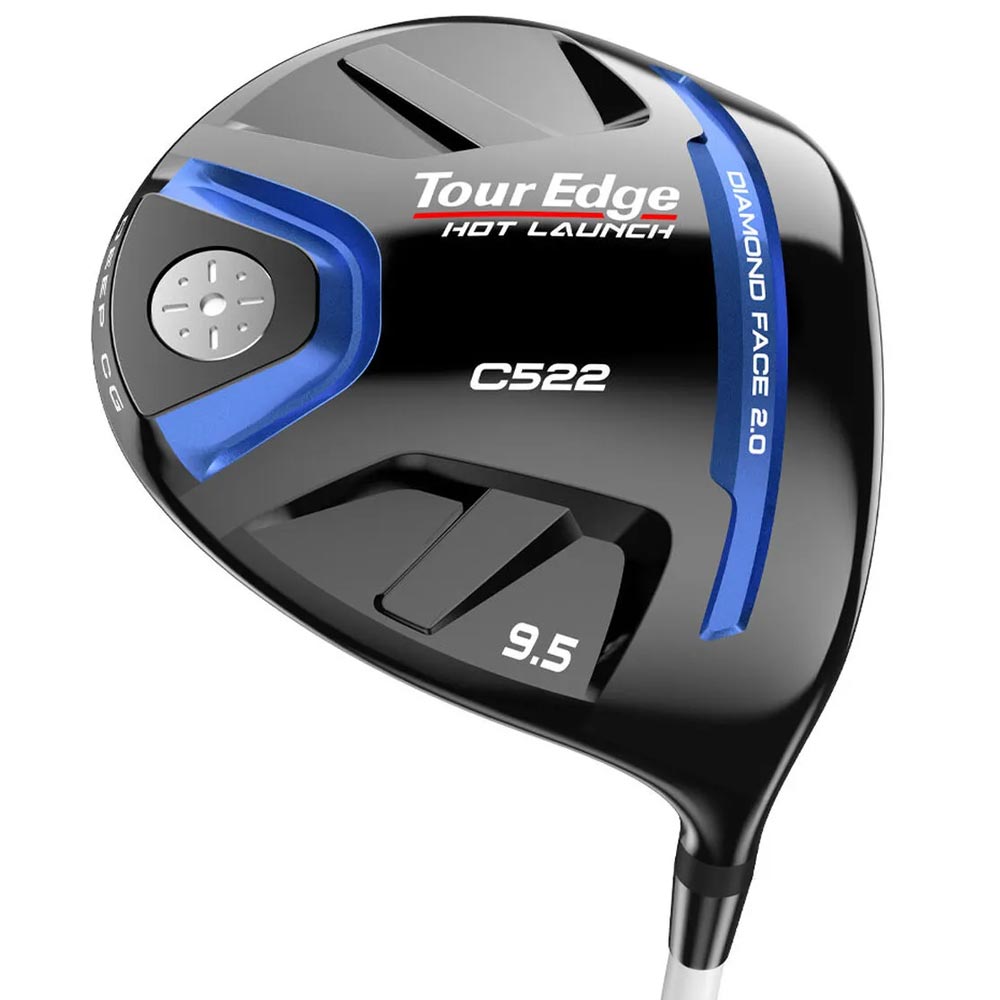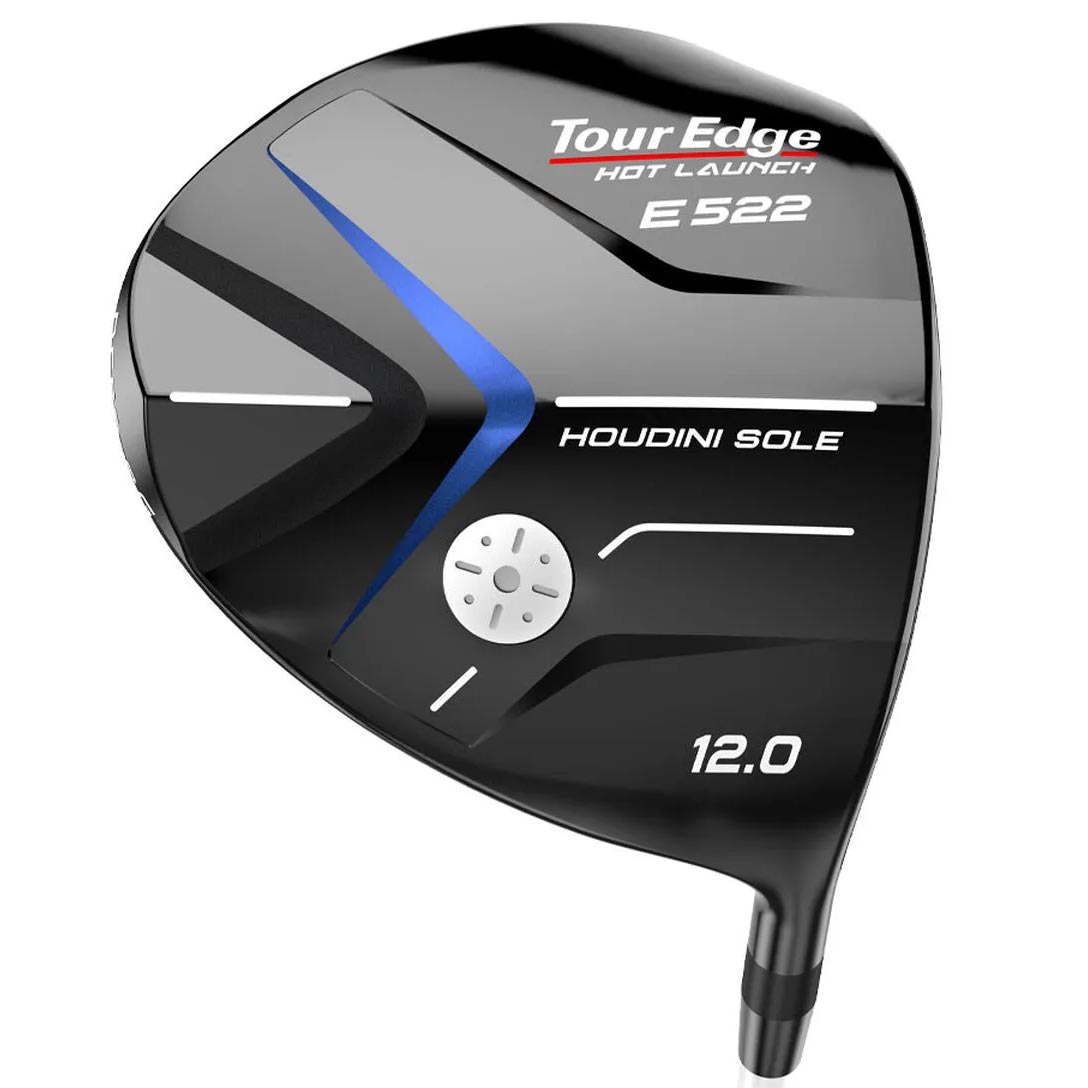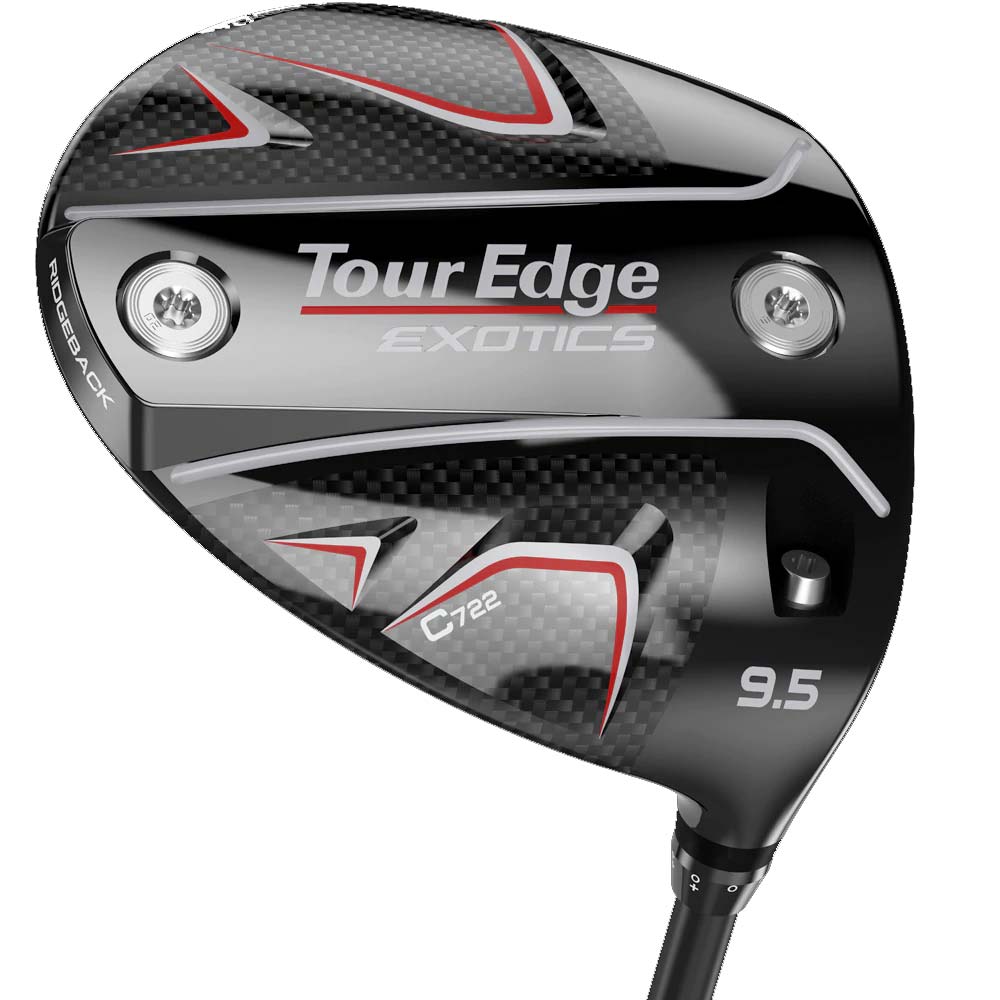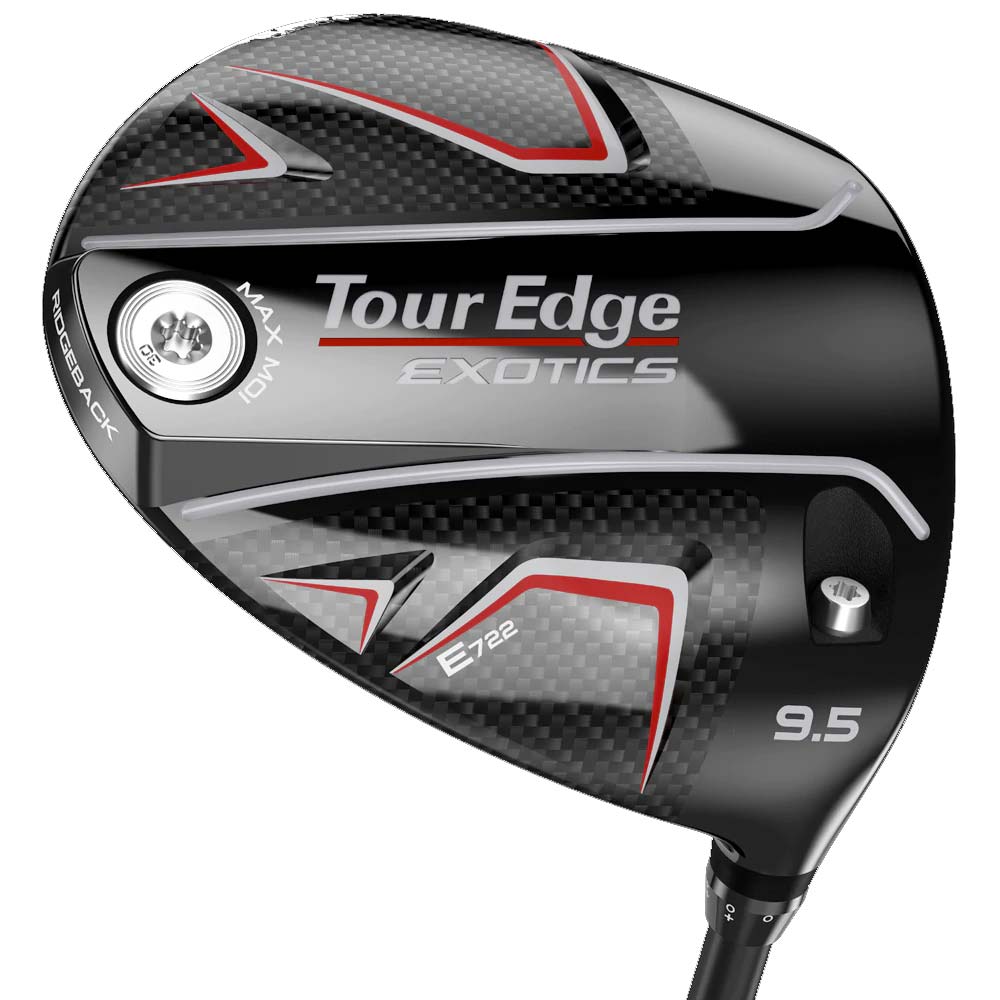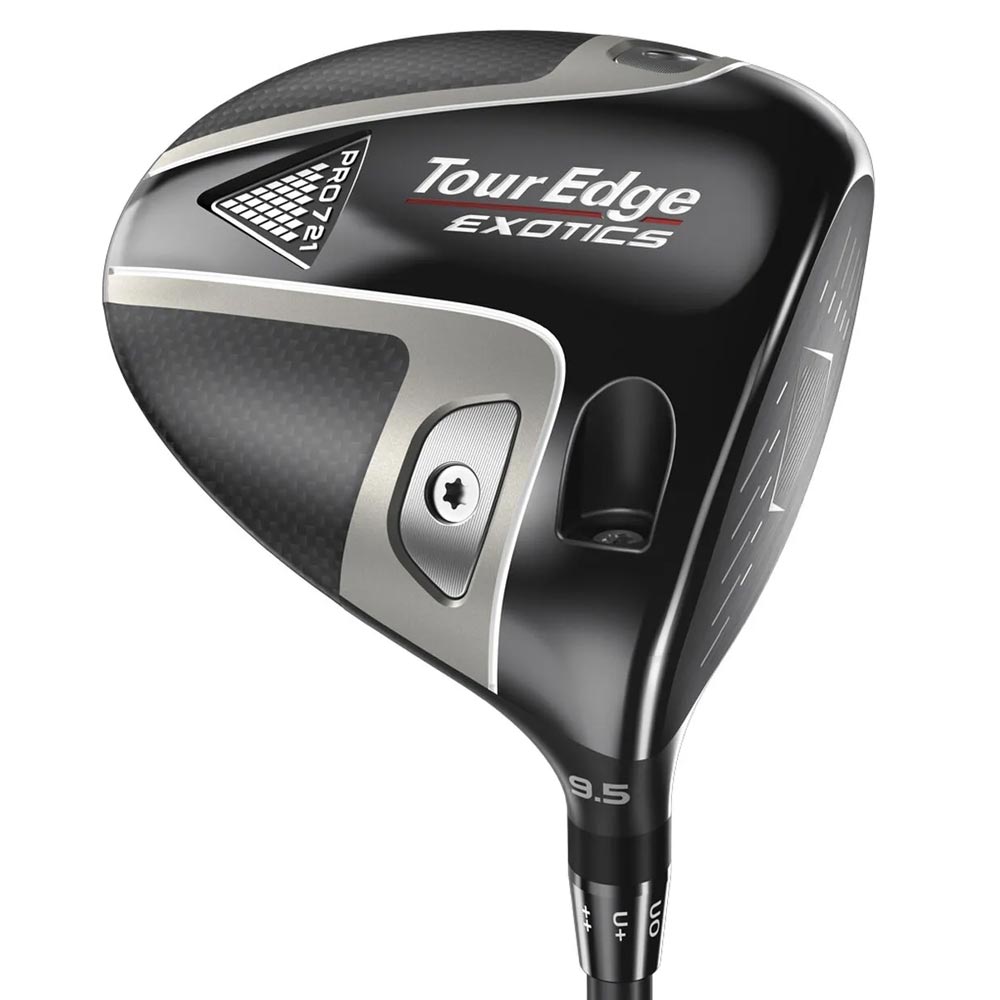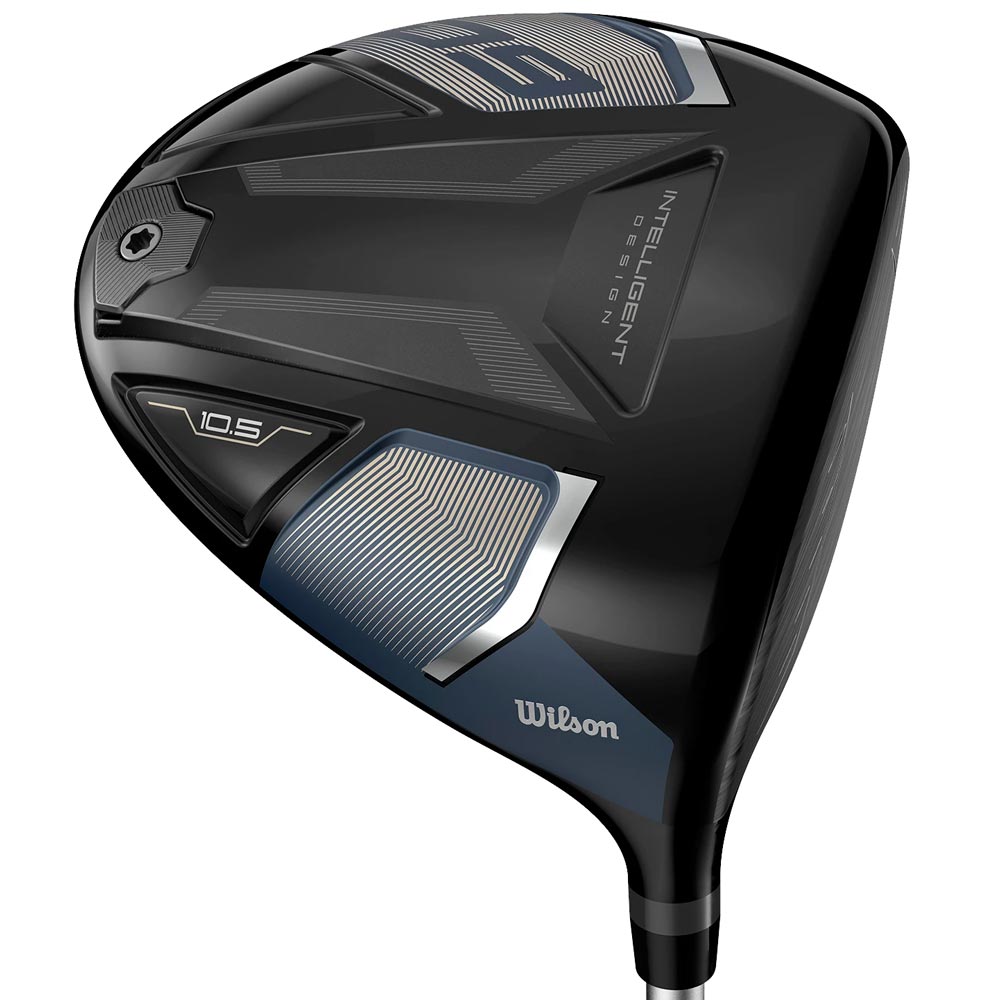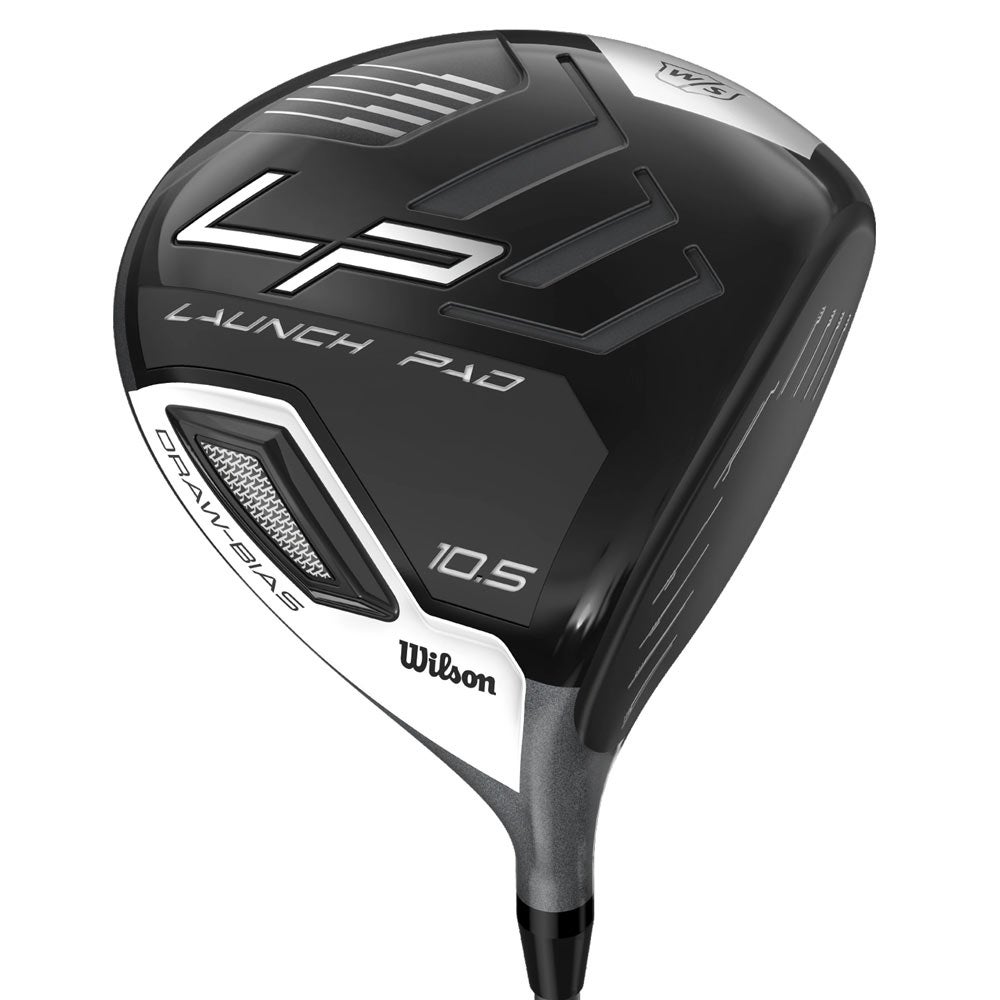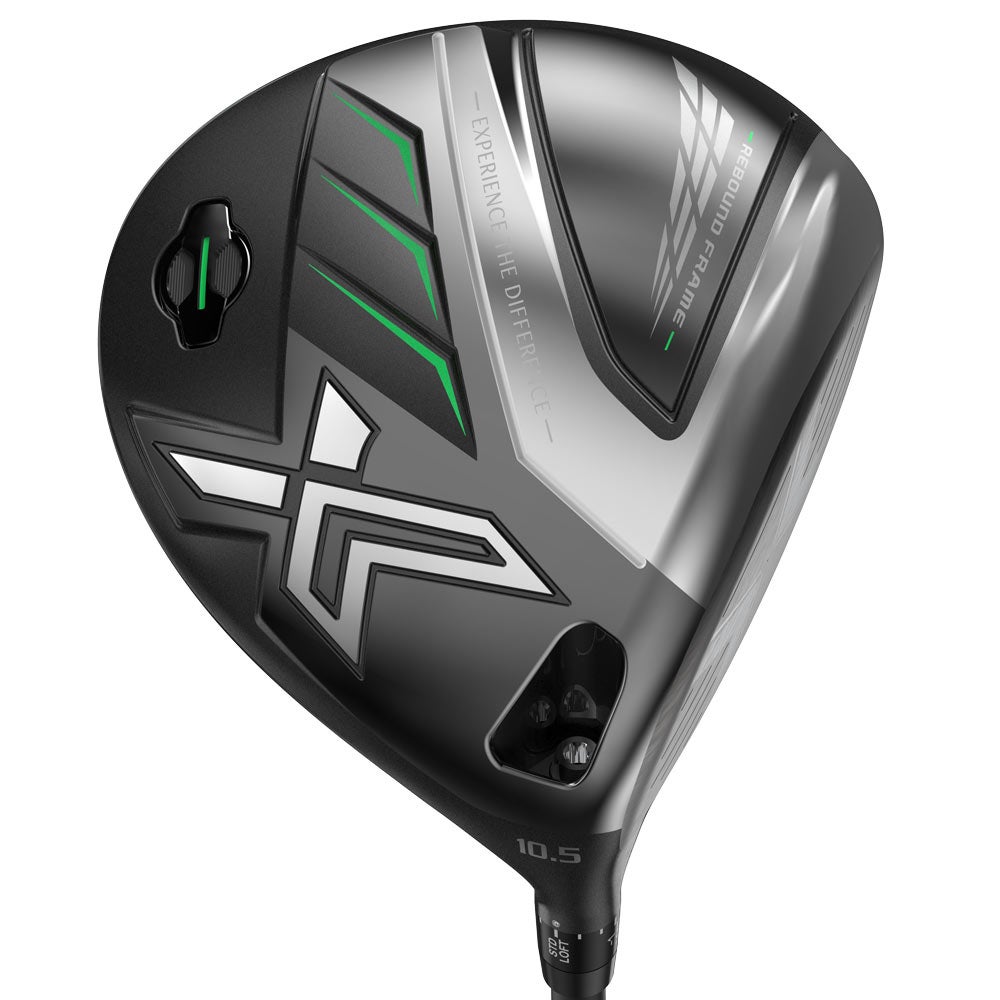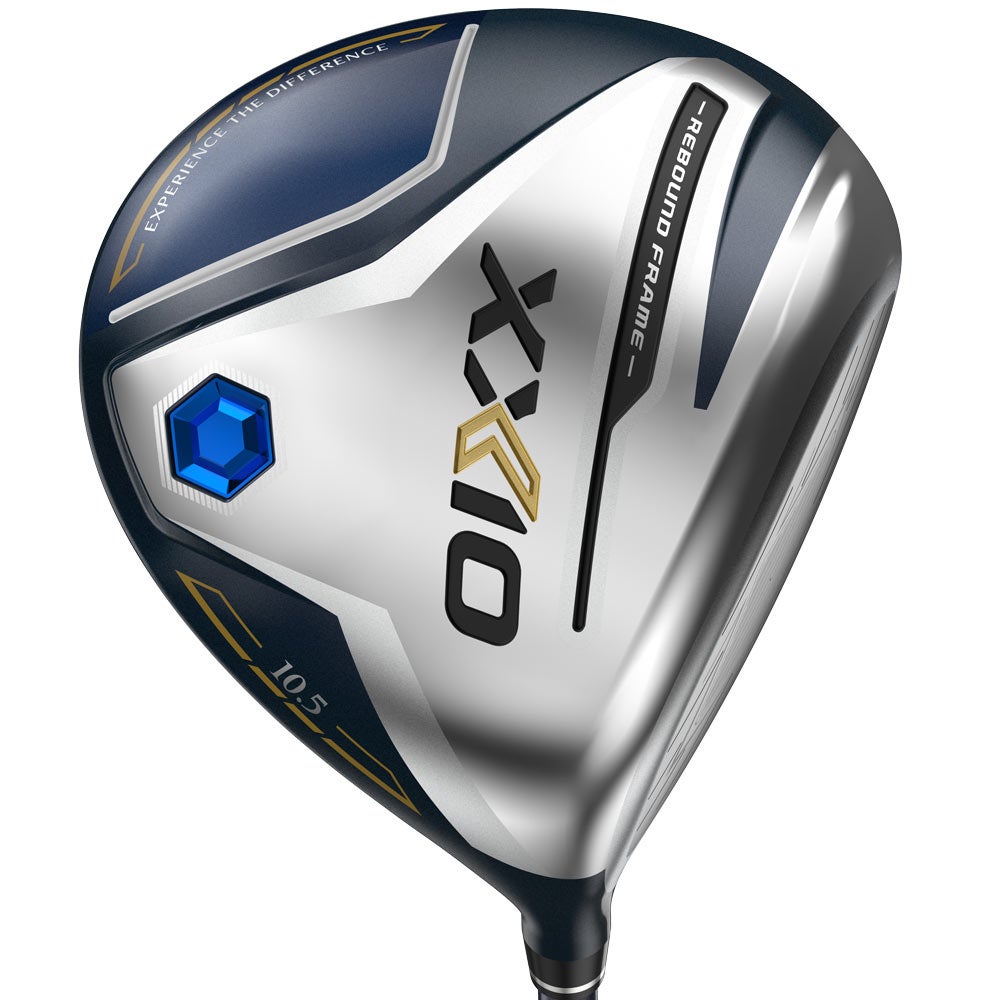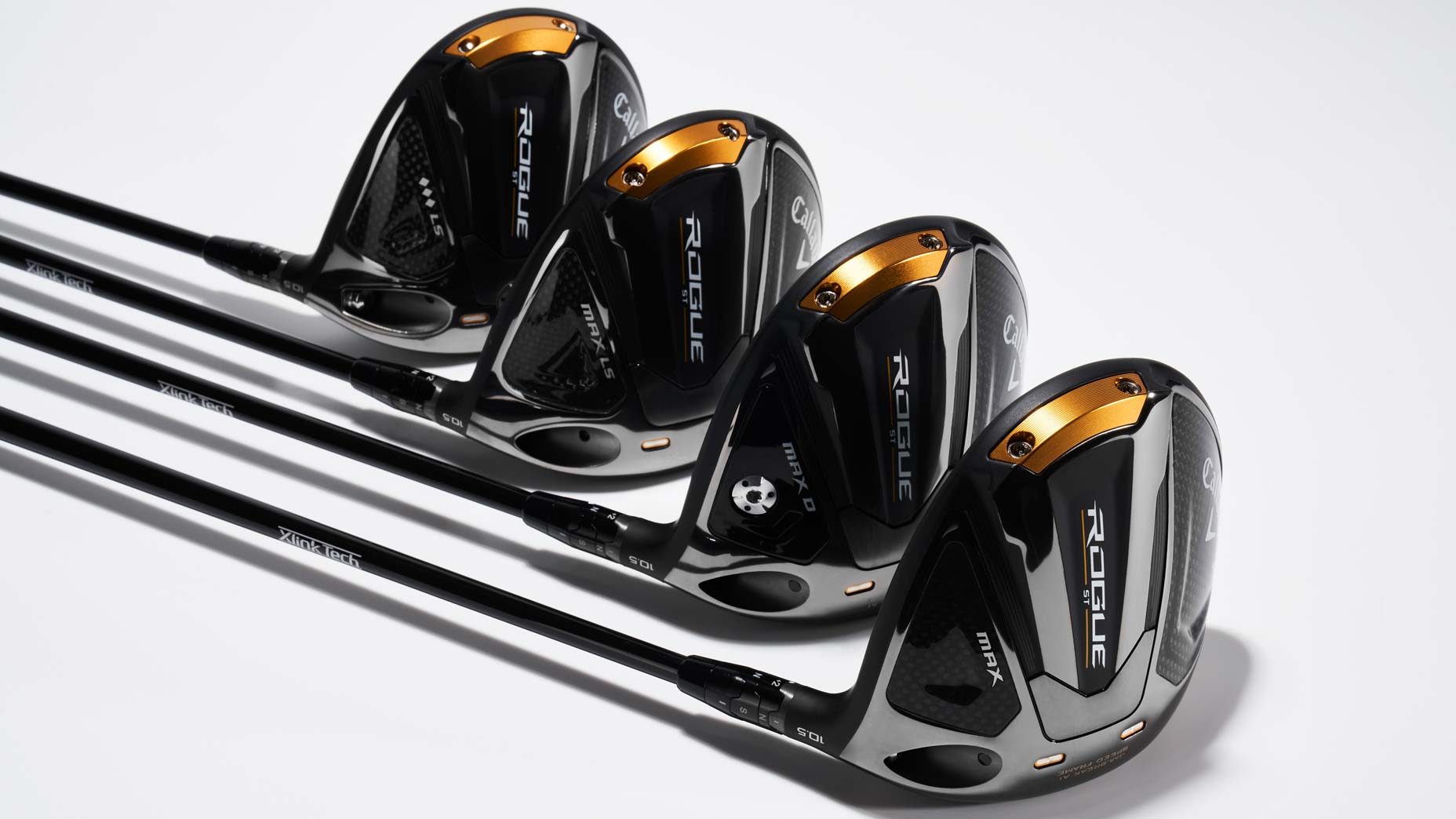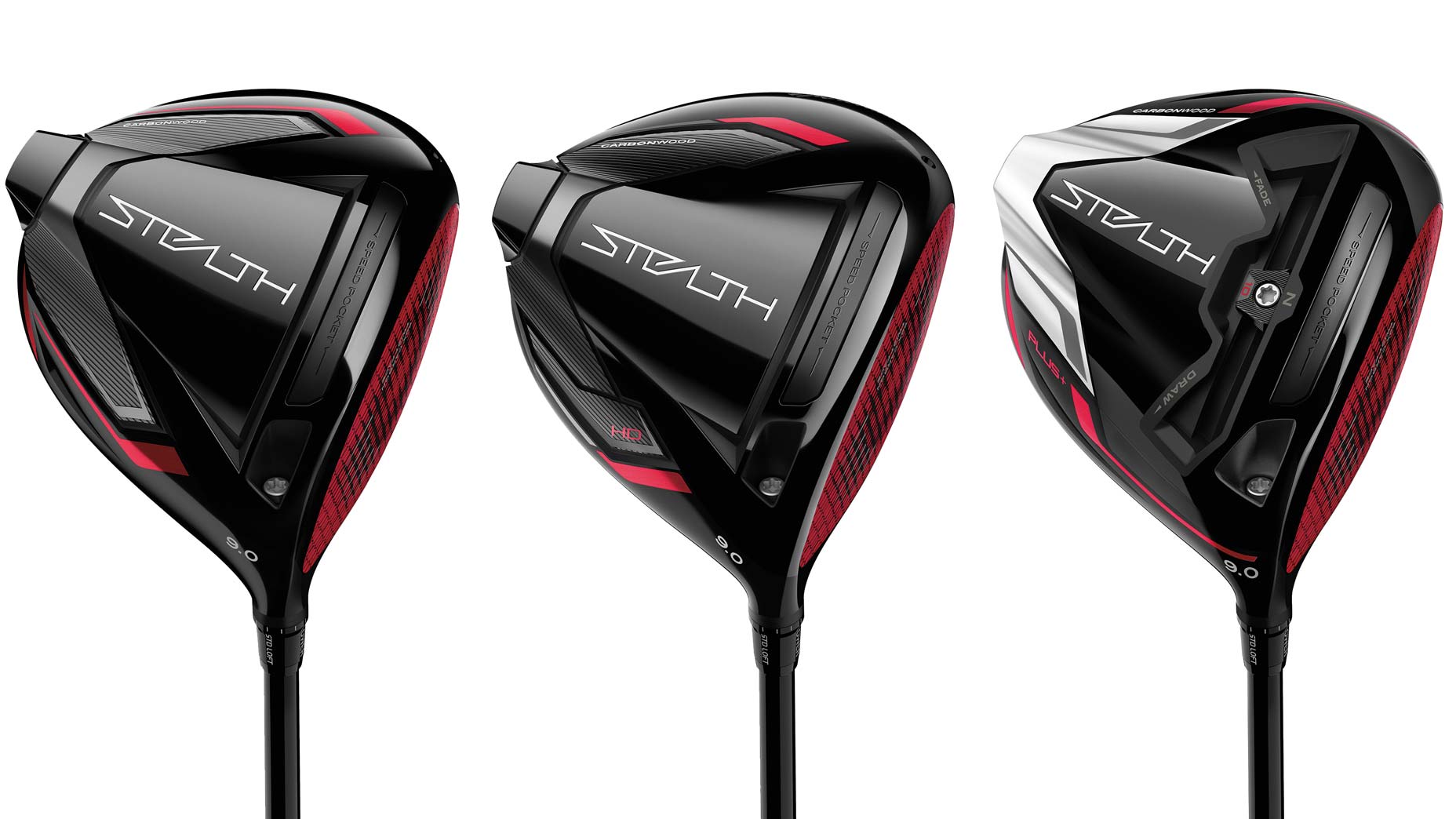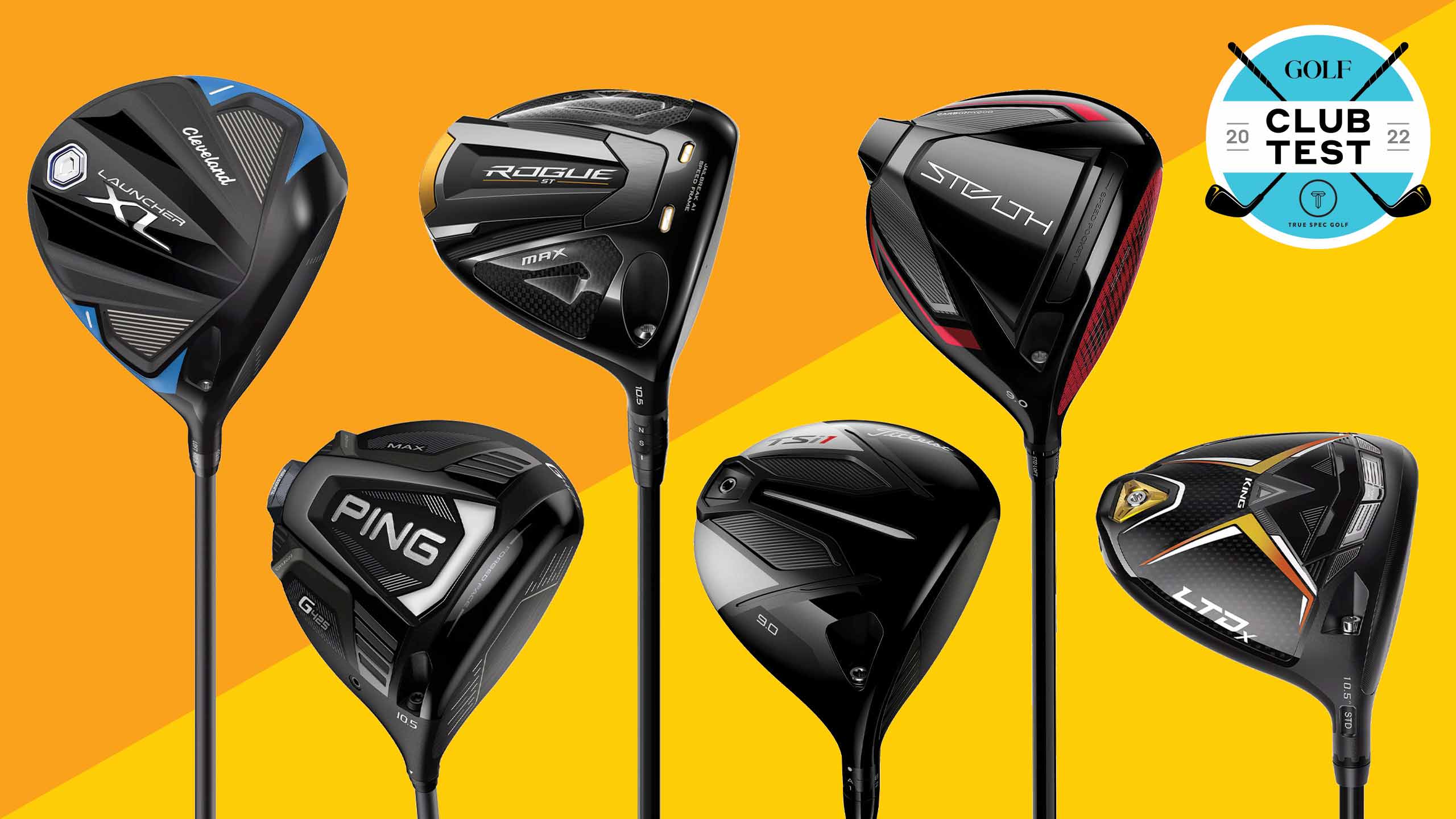
For the latest edition of GOLF magazine’s 2022 ClubTest, we relied on a two-pronged approach to deliver valuable insights into the new crop of drivers, woods and hybrids so that you can make better informed purchasing decisions. A bevy of qualified testers were on hand to provide feedback and performance thoughts on gear from manufacturers big and small. In addition, we completed thorough robot testing of each club with the help of Golf Laboratories founder Gene Parente. You can read all about this year’s ClubTest testing process here.
Below you will find our full reviews and test results of 30 new drivers from the top manufacturers in the game. See something you like? Click through and buy your new driver today.
Driver reviews by brand: Callaway | Cleveland | Cobra | Mizuno | Ping | PXG | Srixon | TaylorMade | Titleist | Tour Edge | Wilson | XXIO
More ClubTest 2022 reviews: Irons | Fairway woods | Hybrids | Wedges | Putters
Want to overhaul your bag for 2022? Find a fitting location near you at GOLF’s affiliate company True Spec Golf.
CLUBTEST DRIVER REVIEWS
Callaway Rogue ST
We tested: Rogue ST Max: 8-11°, 9.5-12.5°, 11-14°; Rogue ST Max LS: 8-11°, 9.5-12.5°; Rogue ST Max D: 8-11°, 9.5-12.5°, 11-14°, Rogue ST Max Triple Diamond: 8-11°, 9.5-12.5°
Our take: These new Rogue ST drivers are fast, forgiving, and look good while doing it. The new matte black crowns proved to be a favorite among our testers at address, but it was the speed and stability off the face they were most impressed with. “I prefer a matte crown, and I don’t normally say this, but it felt fast off the face,” a GOLF tester (Rogue ST Max LS) said. “It was confidence inspiring because direction wasn’t bad on mishits,” another (Rogue ST Max) added.
All of our market picks are independently selected and curated by the editorial team. If you buy a linked product, GOLF.COM may earn a fee. Pricing may vary.
Callaway Rogue ST Max driver
$549.99
The new Rogue ST Drivers represent a breakthrough in driver performance. Callaway’s innovations, including the all-new Tungsten Speed Cartridge, Jailbreak Speed Frame, and an A.I. designed Flash Face are engineered for maximum speed with exceptional levels of forgiveness.
Robot’s take: Rogue ST Max: Made for golfers who want to mitigate a slice via the clubhead’s built-in draw bias. Shots hit toward the heel had the most draw-inducing effects; Rogue ST Max LS: Clearly a driver for better players who prefer a penetrating ballflight, the LS demonstrated the lowest spin rates of all models in the Rogue family; Rogue ST Max Triple Diamond LS: Slightly higher launch than the ST LS, the Triple Diamond’s 10.5 model is one of the lowest spinning drivers we tested at that loft.
The details: The “ST” stands for “Speed Tuned,” so it’s no surprise our testers noted the fast faces. Although the Rogue ST comes in four different models for different golfers, Callaway used Artificial Intelligence to optimize speed, forgiveness, launch and spin for the faces of each individual club head. They also have heavy back weighting in the sole with a new Tungsten Speed Cartridge to drive weight rearward in the head, which reduces twisting at impact. That’s how Callaway was able to increase distance and forgiveness throughout the Rogue ST line.
Cleveland Launcher XL
We tested: Cleveland Launcher XL: 9°, 10.5°, 12°; Launcher XL Lite: 10.5°, 12°; Launcher XL Lite Draw: 10.5°
Our take: According to our testers it’s “one of the loudest drivers out there” and “the ball jumps off the face,” making it a top choice for golfers who want to make an audial statement on the first tee. The shorter length as a hit, too, meaning it was easier to keep the ball in play and hit straighter/longer shots. Hey, more driver distance combined with added forgiveness to keep the ball on the fairway always sounds fun to us.
Cleveland Launcher XL driver
$349.99
With the most MOI ever in a Cleveland Golf driver, Launcher XL will have you thinking less about the club in your hands and more about carrying bunkers, clearing hazards, and finding the fairway.
Robot’s take: There was minimal distance loss on shots hit on the upper-third portion of the face, and the XL Lite showed a stronger draw bias off the heel and high center — two zones where slicers are prone to make contact.
The details: Cleveland’s take on hitting the driver is a simple one: to make it as fun as possible. The Launcher XL headshape has a staggering high MOI, and what the company calls a Rebound Frame for enhanced energy transfer back into the golf ball. Also, the driver comes with an adjustable hosel for ballflight control and an optional 8g weight placed inside the grip end of the shaft (the option includes a one-inch shorter than usual) for added feel and an adjustable hosel for even more customized control. The Lite version weighs in at 12 grams lighter with a 1/4-inch longer shaft, and can be outfitted with or without the counterbalancing if preferred. Alas, an XL Lite Draw option is also available.
Cobra King LTDx
We tested: 9.5°, 10.5°, 11°, 12°
Our take: With its look, feel and forgiveness, Cobra’s LTDx appealed to our testers on multiple fronts. “Great off the toe,” one GOLF tester said. “The face felt really hot,” noted another. Still others singled out the “neutral-sitting face angle” and sleek aesthetics of a driver that was designed with insights from artificial intelligence.
Cobra King LTDx
$499.99
The LTDx driver is the first Cobra driver to achieve zero CGna and Xtreme MOI making it the company’s fastest and most forgiving ever. This unique design features the perfect balance of front and back weighting, making it playable for all golfers that want the ultimate combination of low spin and stability.
Robot’s take: Shots fired away from the sweet spot performed well, with low levels of distance loss. Shots hit squarely on the face delivered big yardages—a testament to the club’s 5,000-plus MOI.
The details: Drawing on innovations in materials, weight placement and aerodynamics, Cobra has produced what it bills as its first-ever “zero CG” driver, meaning that its center of gravity is at the neutral line, not above it. Key features include a multi-material weighting system that shifts mass downward; a lightweight carbon crown to further optimize weight distribution and boost stability; and an AI-generated face of varied thickness that gets the most of every shot, no matter the contact. For golfers, the company says, it all adds up to a “breakthrough” in speed and forgiveness.
Cobra King LTDx Max
We tested: 9°, 10.5°, 12°
Our take: Everything that makes the stock LTDx great can be found in the LTDx Max, only this time it comes with extra weight in the heel to once and for all put an end to the dreaded banana ball. We found it to be a long and forgiving bomber with a noticeable draw bias even though it’s not a high-spin driver. Shots fired flew with a mid-highish launch, which for us meant our draws flew with more ballspeed and landed with forward roll for extra yards. That’s a win in our book.
Cobra King LTDx Max driver
$499.99
The LTDx driver is the first to achieve zero CGna and Xtreme MOI making it Cobra’s fastest and most forgiving ever. This unique design features the perfect balance of front and back weighting, making it playable for all golfers that want the ultimate combination of low spin and stability.
Robot’s take: The draw-biased LTDx Max has the biggest sweetspot of the family for best-in-class forgiveness with the smallest distance drop-offs on all nine points of the clubface.
The details: Built for maximum ballspeed, forgiveness and slice control, the extra-forgiving LTDx Max comes with a multi-material chassis (mixing carbon with titanium), internal PWR-COR weighting (to keep spin rates under control), and H.O.T. Face Tech that includes 15 zones made with differing thicknesses for more distance and forgiveness across a wider area of the CNC-milled clubface. Comes with adjustable weights and an adjustable hosel for a tweakable ballflight.
Cobra LTDx LS
We tested: 9°, 10.5°
Our take: Our testers quickly noted the “neutral sitting face angle” and raved about the aesthetics—something we agree is a huge improvement in not just this model, but the whole LTDx line. It’s a forgiving headshape and the internal workings make it long but make no bones about it—this is a player’s driver, made for those who want a boring trajectory with low spin, that’s also workable come time to hit butter fades and baby draws.
Cobra LTDx LS driver
$499.99
The LTDx LS (“Low Spin”) driver is designed for Tour players and better amateurs seeking low spin, fast speed and workability. A traditional aerodynamic shape features forward-biased heel and toe adjustable weighting, and a back weight for added forgiveness.
The details: Built in the same vein as the rest of the LTDx line, the LS is tuned for a lower launch and less spin for players who want workability and control over sheer distance and ballspeed. That doesn’t mean it’s not long and forgiving—it is, thanks to PWR-COR internal weighting for a forward/low CG, and H.O.T. Face Technology made with artificial intelligence and machine learning for a design that produces a faster ballspeed across more points on the clubface. It too has a multi-material chassis, a CNC-milled clubface and comes with adjustable weighting and an adjustable hosel sleeve for a precise ballflight condition.
Cobra Air-X
We tested: 9.5°, 10.5°, 11.5°
Our Take: The lightest construction in the Cobra family, Air-X is designed for beginners and players with smooth tempos in need of extra pop. Other game-improvement features include heel weighting and a large, fast sweet spot that imparts greater speed no matter where you make contact.
Cobra Air-X Offset driver
$349
The AIR-X offset driver is Cobra’s lightest construction at 277g. A lightweight design promotes great feel and effortless speed for longer drives, while an offset hosel design promotes straighter drives.
The Details: Made from premium lightweight carbon, the Air-X tips the scales at just 277 grams. That feathery makeup, Cobra says, is meant to promote feel and effortless speed. The club is also available in an offset version for golfers who fight a slice.
Mizuno ST-G 220
We tested: 9° (loft ranges between 7° – 11°)
Our take: Mizuno’s latest drivers are the best drivers we’ve ever seen from the company — not just because they’re the newest, but also relatively speaking from year to year. The ST-G is the newest from the company, affording a tremendous level of customization via multiple weight options on the sole. Which even if it didn’t have that, this driver would still contend on its killer looks, the carbon crown and adjustable hosel tech. It also has one of the most satisfying sounds of any carbon-crowned drivers we’ve tried this year.
Mizuno ST-G 220 driver
$499.99
Building on the success of the ST-Z and ST-X drivers and featuring Mizuno’s new SAT2041 Beta Ti face and complex carbon construction to deliver both potent ball speeds and a dense, satisfying sensation at impact, the ST-G 220 driver adds unparalleled adjustability to the mix for super-precise fitting.
The details: The two weight tracks on the sole (one towards the heel the other towards the toe) afford greater trajectory and spin customization, and the rear weights further that effort even more via options for an even deeper CG. Also comes with a composite crown for a lower center of mass, a multi-thickness CORTECH face, Wave Sole and quick switch capability for adjusting lofts up to four degrees.
Mizuno ST-X 220
We tested: 10.5°, 12°
Our take: We wouldn’t categorically call the ST-X an anti-slice driver by any means, but the added draw bias does in fact work its hardest to counteract slices thanks to internal weighting that favors the heel region. This speeds up the toe through the hit, helping prevent open-faced clubheads and aids in reducing left-to-right spin. It works, but it’s subtle. If anything, we found it didn’t produce draws, it allowed for straight to slight fades, which we’ll take any day of the week off the tee.
Mizuno ST-X 220 driver
$449.99
With higher spin rates than its ST-Z counterpart, the ST-X, will suit moderate swing speeds, needing help producing a more extended ball flight. A new 20-gram heel biased back weight creates a deeper center of gravity for more efficient, longer drives- more often.
Robot’s take: The ST-X has the higher launch of the new Mizuno drivers and, with the built-in draw bias, produces an equal dispersion on off-center hits. Spin was mid to high for max distance.
The details: Comes with a composite crown that’s been pushed out further towards the toe for both a lowered CG and internal weighting more towards the heel. Also comes with a forged Beta-Ti CORTECH clubface for faster ballspeeds and an adjustable hosel for even further trajectory configurations.
Mizuno ST-Z 220
We tested: 9.5°, 10.5°
Our take: For those who want a drive that produces a penetrating loft with medium-to-low spin rates, the ST-Z has proven itself among the best drivers in that category. According to our testers, “the ball launches with added power and it feels like I can shape shots if I need to.” Furthermore, another tester is on record saying, “I like how the carbon crown makes it easy to see the tech inside and the ballspeed has been incredible.”
Mizuno ST-Z 220 driver
$449.99
With a balanced toe/heel carbon construction and central back weight, Mizuno’s ST-Z driver encourages a low spinning, efficient straight ball flight. The modern ground hugging 460cc profile is both confidence inspiring and appealing to elite players.
The details: Featuring a composite crown section and a high-strength, forged Beta Ti clubface, the ST-Z is designed for players who want a penetrating launch with low-spin to lessen curvature to the left or right. Comes with an 8-point adjustable hosel for flight and loft adjustments up to four degrees.
Ping G425
We Tested: G425 Max: 9°, 10.5°, 12°; G425 SFT: 10.5°; G425 LST: 9°, 10.5°
Our take: Most of golf’s big dogs come in either of two breeds: sturdy, stable and dependable, like a St. Bernard, or flashy, dashing, off-to-the-races distance, like a greyhound. But Ping’s G425 was like the ideal mutt, combining the best of both breeds. Hitting the Max version of the Turbulator-crowned driver, one tester gushed, “This is the club I’d be walking home with. It goes so far—the ball flight seems like a rocket, like it has a gear the others don’t.” The G425’s bark was just as popular, as players complimented its deep, booming note at impact.
Ping G425 Max driver
$549
To achieve the new performance levels in the G425 Max, Ping engineers combined key technologies from the G400 Max and G410 Plus. The resulting increase in MOI in the 460cc head comes mainly from a 26-gram tungsten movable weight, which is made possible by weight savings attributed to advancements in the driver’s crown.
Robot’s take: G425 Max: The Max proved to be the most forgiving G425 driver across more points on the face. Off-center hits had minimal loss of distance, making it the ideal choice for golfers who want an all-around performer; G425 LST: The low-spinning choice in the G425 line, the LST had minimal distance drop-off on toe hits—a region where better players often miss. Trajectories were penetrating and consistent; G425 SFT: The draw bias worked well in our tests, especially on hits on the heel and high center. Its slice-correcting performance will be welcomed by players who need it.
The details: Our breeding metaphor isn’t just whimsical—it’s appropriate, too. Ping underscores that the G425 series combines technology from prior models, to produce varying emphases. Thanks to a 26-gram adjustable tungsten weight in the back of the head, the G425 Max is the company’s most-forgiving and highest-launching driver ever, per Ping. Slicers among us should gravitate toward the G425 SFT due to its draw bias, while fast swingers should first check out the G425 LST due to its spin-reducing design.
PXG 0211
We tested: 9°, 10.5°, 12°
Our take: The 0211 earned high marks from our testers for its forgiveness and stability. “It’s extra forgiving, and that’s a good thing for me,” one tester said. “I set it down and don’t feel like I can miss. I can’t remember the last time I played a driver like that.” With a titanium-alloy face and substantial back-weighting, golfers won’t have to worry about the clubhead twisting at impact.
PXG 0211 driver
$189
The 0211 is designed to feel and sound as good as it performs, thanks to a vibration-dampening TPE insert in the rear sole. That’s also where they’ve placed the single weight port designed to max out MOI and create a deeper, launch-optimizing center of gravity.
The details: The 0211 is designed with optimal feel and sound in mind, and thanks to a vibration-dampening TPE insert in the rear sole, it achieves just that. The rear sole also houses a single weight port that’s designed to max out MOI and create a deeper, launch-optimizing center of gravity.
PXG 0211 Z
We tested: 16°
Our take: The 0211 Z driver is built for the weekend warrior — they might not play a ton, but when they do, they want the reliability that PXG offers. This driver is sold in conjunction with the 0211 Z 10-piece set and will have you sending missiles down the fairways, no matter how infrequently you play.
PXG 0211 Z wood set
$795
The PXG 0211 Z Driver produces nice distance and loft off the tee for golfers with slow swing speeds. The large, carbon fiber clubhead design and patented dual internal cavity technology encourage effortless launch and confidence off the tee.
The details: The 0211 Z has a low-profile, carbon-fiber crown that shifts the center of gravity lower and rearward, increasing launch and forgiveness. The driver also features Honeycomb TPE inserts within the head that not only dampen vibrations, but also improve sound and feel.
PXG 0811 X
We tested: 7.5°, 9°, 10.5°, 12°
Our take: The 0811 X driver offers the optimal balance between power and forgiveness, and the look is as sleek as they come. “A clean look at address is what I’m going for with my driver, and this delivers,” one tester said. “It has a good crunch at impact, and you know when it’s crushed.” If you’re looking to smash bombs, and look good doing it, you’ve got to give the 0811 X a look.
PXG 0811 X driver
$349
The PXG 0811 X GEN4 driver’s innovative head design, coupled with PXG’s Hybrid Crown Construction and Precision Weighting Technology, delivers low spin performance and exceptional distance.
Robot’s take: The whole line of 0811 Gen4 drivers had excellent off-center dispersion numbers, with the X being tops in terms of distance and forgiveness.
The details: The 0811 X is the most forgiving of PXG’s Gen4 drivers, but there are still plenty of ways to customize it to your liking. It comes with adjustable weight ports and hosels, featuring a high-performance anti-glare finish. The driver also features a hybrid crown construction, a honeycomb TPE sole insert and tall, high-speed face that lowers the center of gravity and promotes high launch/low spin drives.
PXG 0811 XF
We tested: 7.5°, 9°, 10.5°
Our take: If hitting the center of the clubface isn’t your forte, worry not — the 0811 XF is built with less-than-perfect strikes in mind. The larger head at address will build your confidence as you address the ball, and that bravado will continue to soar when you see how far you can smash this driver down the fairways.
PXG 0811 XF driver
$349
The PXG 0811 XF GEN4 driver’s larger profile head design helps build confidence at address and is optimized for outstanding distance and exceptional forgiveness.
The details: The 0811 XF comes equipped with three weight ports on the sole to promote fine-tuning, and the lower side profile and a deep front-to-back head shape promotes optimal forgiveness. The face is also larger and longer head-to-toe, making certain that even mishits don’t sacrifice too much distance.
PXG 0811 XT
We tested: 7.5°, 9°, 10.5°
Our take: The 0811 XT is PXG’s tour-inspired model of their Gen4 line and is built for players with high swing speeds who find the center of the face often. This driver is made with low handicappers in mind, and for those who want to maximize performance without worrying about repeated mishits. If you’ve got aspirations of a club championship, the 0811 XT is built for you.
PXG 0811 XT driver
$349
The PXG 0811 XT GEN4 Driver brings great performance in a sleek package. The tour-inspired tear drop head shape is engineered to improve aerodynamics for faster clubhead speeds and extremely fast ball speeds.
The details: Like the other Gen4 models, the 0811 XT comes with an adjustable hosel that allows for +/- 1.5 degrees of loft adjustability. The head is engineered with a a tour-inspired, teardrop shape that is intended to reduce drag and caters to golfers with faster swing speeds. The driver also features a smaller face to reduce drag forces to make sure you get as much ball speed as possible.
Srixon ZX5
We tested: 9.5°, 10.5°
Our take: Srixon drivers have been sneakily good for a while now, but we anticipate the ZX5 to help increase the brand’s footing among top competitors in the driver category, thanks to some power-packed multi-material technology and added performance benefits. And oh yeah, signing Brooks Koepka to play this driver sure didn’t hurt. It’s a bomber off the tee that flies straight if you want it to or can be set up to accommodate fades or draws.
Srixon ZX5 driver
$499.99
Combine great looks, feel, and sound with a forgiving launch and confidence-inspiring address view. A larger footprint and flattened shape, along with a single sole weight placed low and deep, make ZX5 ideal for straight drives that launch high and carry far.
The details: Everything about the ZX5 centers around the Rebound Frame, which has alternative zones of stiff and flexible areas that work together to focus more energy transfers back into the golf ball, especially on center strikes. Coupled with a larger carbon crown for a lower CG and high MOI, as well as an adjustable hosel and sole weight and you have a driver destined for higher-yet-penetrating and straighter drives.
Srixon ZX7
We tested: 9.5°, 10.5°
Our take: The sister driver to the ZX5, the ZX7 comes in a more pear-like shape for players who want added shotmaking capabilities and a lower launch when compared to the ZX5. Now, do we think that means it’s strictly a better players’ club? Not at all. The same Rebound Frame, carbon crown and adjustable hosel combine to produce exceptional levels of playability—it really comes down to whether you want a more rounded shape and/or if you want added control via two sole weights as opposed to one in the ZX5.
Srixon ZX7 driver
$529.99
The ZX7 is purpose-built to put you in control. Hosel adjustments and weight calibration give serious players the ability to dial in their play and take things to the next level. It’s the control you want with the power you demand.
Robot’s take: Made for better players who want distance, forgiveness and, most importantly, control off the tee. Produced low-launch, low-spin flights with balanced distance loss on off-center hits.
The details: The Rebound Frame is to create more energy back into the golf ball, which means higher ballspeeds—especially on shots fired closer or on the sweetspot. There are also two weight ports on the sole to adjust CG positions for either a draw or fade shot shape and an adjustable hosel for even more loft, lie angle and face angle configurations.
TaylorMade Stealth
We tested: 9, 10.5, 12 degrees
Our take: Generating game-changing ball speed from one year to the next is a difficult proposition, but nearly every tester who gave the more forgiving TaylorMade Stealth a swing saw at least a 1-2 mph increase. Some saw a 5 mph speed bump. It’s all thanks to a new 60-layer Carbon Fiber Twist Face that delivers a more efficient energy transfer at impact. Even better? It doesn’t sound or feel like the initial carbon faces that were briefly introduced two decades ago. “It feels like a persimmon head, but it’s ‘solid’ — an extremely ‘different’ experience,” raved one GOLF tester. “It’s different than anything I’ve felt. I’m looking forward to trying it on the course.” You’re not the only one.
TaylorMade Stealth driver
$579.99
Twenty years of development marks the end of the titanium era. The all new 60X Carbon Twist Face is 44% lighter than an equivalent titanium face, while also being 11% larger than SIM2 and SIM2 Max drivers and nearly 20% larger than the 2020 SIM driver.
The details: A carbon-fiber face replaces the titanium construction we’ve come to expect from nearly every driver on the market. TaylorMade, on the other hand, found significant benefits in a new material construction. Reducing the face weight by 40 percent allowed designers to increase the face size by 11 percent (versus SIM2) and add weight to the body to maximize the transfer of momentum at impact by positioning more mass behind the face for a higher COR.
To give the face the right amount of spin with ideal launch conditions, a polyurethane layer was added to the carbon fiber that includes full-face scorelines to improve spin in wet conditions. For optimal spin in dry conditions, a microtexture was situated between the grooves to reduce spin at impact.
A titanium sole and internal sound ribs were also added — SIM2 featured a mostly carbon sole construction — to increase the “metallic” noise and feel at impact, thus eliminating the sound issues that plagued previous carbon faces.
TaylorMade Stealth Plus
We tested: 8, 9, 10.5 degrees
Our take: One of the most requested drivers during GOLF’s player testing, Stealth Plus is the answer for golfers who need to reduce spin. Most golfers saw anywhere from 200-400 RPMs less spin, on average, during testing on Foresight’s GCQuad launch monitor. “I’m seeing a lower launch and spin right out of the gate,” commented one GOLF tester. “And it’s something I can visually see. My launch monitor is usually a few degrees higher, and you can see the ball continuing downrange. I could see this being a great option for guys who can move it.”
TaylorMade Stealth Plus driver
$599.99
The TaylorMade Stealth Plus driver features a face with sixty layers of carbon fiber strategically designed to optimize energy transfer to deliver fast ball speeds over a large area, resulting in optimal distance and forgiveness.
Robot’s take: Average ball speed increase of 2 mph across all nine points tested versus SIM2. One of the best distance balances on off-center hits on all of the models.
The details: Featuring the same carbon-fiber face construction as the standard Stealth, the Plus version features a weight track with an adjustable 10-gram weight that can be positioned in the heel or toe for shot shape purposes.
Expect to see plenty of Stealth Plus drivers on Tour this season. Dustin Johnson, Rory McIlroy and Tommy Fleetwood are just a few of the high-profile staffers wielding the driver at the moment. Most saw an increase of over 2 mph in ball speed during initial testing — a number that was validated by GOLF’s robot testing data. Even more impressive: the ball speed increase was an average of all 9 points tested on the face.
TaylorMade Stealth HD
We tested: 9, 10.5, 12 degrees
Our take: The most common miss for the average golfer is a slice. The arms lag behind during the swing at impact, causing the face to stay wide open when face meets ball. To help corral the dreaded banana ball, TaylorMade created the draw-biased Stealth HD to even the biggest miss on the planet. Robot testing data revealed roughly 15 yards of draw bias in the HD head, which comes compliments of a heavy Inertia Generator positioned in the heel. “Seeing the ball turn over is something that doesn’t happen all that often,” said a tester. “If I can turn it over, you can be damn sure those bigger misses will be a little straighter. That’s a few more balls left in my bag at the end of the round.”
TaylorMade Stealth HD driver
$579.99
Twenty years of development marks the end of the titanium era. The all new 60X Carbon Twist Face is 44% lighter than an equivalent titanium face, while also being 11% larger than SIM2 and SIM2 Max drivers and nearly 20% larger than the 2020 SIM driver.
Robot’s take: Golfers who tend to hit the ball out of the center and upper-center quadrants, including the heel and toe, will notice minimal distance drop-off.
The details: A heavier weight in the heel is the big addition to the draw-biased Stealth HD. The rest of the tech remains the same. The unmistakable red Carbon Fiber Twist Face delivers ball speed, while the internal sound ribs ensure a titanium-esque sound at impact. The driver is available in three different lofts, including a 12-degree option for golfers who need a higher launch in their life.
Titleist Tsi1/2/3/4
We tested: TSi1: 9˚,10˚, 12˚; TSi2: 8˚, 9˚, 10˚, 11˚; TSi3: 8˚, 9˚, 10˚, 11˚; TSi4: 8˚, 9˚, 10˚
Our take: Hiding under the bed at this year’s ClubTest was one of the scariest offerings in golf: Titleist’s high-flying TSi family of drivers. It’d be easy to overlook the TSi — which found its way into the top performers of last year’s ClubTest — among the shinier options available in 2022. Not to our Testers, though. “It’s the hottest driver I’ve tested,” one raved of the TSi2. “The ball moves downrange with gusto. I could tell after a few swings it was an absolute monster.” Spine-chilling speed gains have helped to make the TSi one of the most popular drivers in golf. And with four distinct options, there’s a choice for everybody — the TSi1, for mid-speed players; TSi2, for max distance; TSi3, for added ball control; and TSi4, for high-speed, low-spin aficionados. (Night lights sold separately.)
Titleist Tsi1 driver
$549.99
From clubhead to grip, TSi1 metals have been strategically engineered and weighted to deliver maximum launch and distance at moderate swing speeds.
Robot’s take: TSi1: The lightweight TSi1 had the highest launch in the TSi family of drivers, making it the ideal choice for golfers with moderate swing speeds who need a boost in trajectory and overall distance; TSi2: TSi2 had medium/high draw launch with low-spin ballflight, making it best suited for players wanting maximum distance and forgiveness across the clubface; TSi3: TSi3 had exceptional ¾-inch toe and heel distance dropoff. It’s a solid choice for players who want distance and consistency on both pure and off-center hits; TSi4: TSi4 had a medium/high launch with the lowest spin rates in the TSi family, cementing its status as the player’s option for more distance and shotmaking versatility.
The details: Titleist soared onto the scene (quite literally) with the introduction of the TSi2 and TSi3 drivers in early 2021, scoring out as two of the highest-performing models in the class. Then came the TSi1 and TSi4, which were quickly adopted by the likes of World No. 1 Nelly Korda and major champ Adam Scott, respectively. The star of the TSi line is the scorching-hot ATI 425 face, which is made from a type of aerospace-grade titanium originally developed for military use. Not only does ATI 425 help to produce faster ballspeeds and longer drives, it also helps to tighten dispersions on off-center hits. And, if that won’t do it for you, the TSi’s unique head design helps to reduce drag and improve launch conditions.
Tour Edge Hot Launch C522
We tested: 9.5°, 10.5°, 12°
Our take: The no-frills design of the Hot Launch C522 is a welcoming one. It’s almost as though this driver becomes easier to trust, since there’s no fiddling with adjustable weight or adjustable hosels here. You simply grab hold and swing away, and in our experience, the results live up to the hype. This driver produced bombs that flew high and straight with moderate spin, with a dose of added shotmaking capabilities.
Tour Edge Hot Launch C522 driver
$249.99
The 460-cc C522 Driver features Diamond Face 2.0 technology with 42 different thick and thin diamond shapes behind the face of the metals for an enhanced sweet spot.
The details: The springy Diamond Face 2.0 cupface design improves ballspeed and a deep rear sole weight boosts MOI for added stability, especially on off-center strikes. Additionally, the A.R.C. Acoustic Engineering helps deliver a solid feel and sound.
Tour Edge Hot Launch E522
We tested: 10.5°, 12°, HL
Our take: We’re refreshed to see a driver that bills itself as being the “easiest driver you will ever hit.” And in our trials, we agree, the E522 makes it a cinch to get the ball airborne and comes with built-in slice control to help keep the banana balls at bay. Like the C522, its no-frills design makes it easier to focus on hitting good shots without worrying about whether your clubhead is calibrated in a way that best fits you.
Tour Edge Hot Launch E522 driver
$249.99
The Houdini Sole design innovation pushes weight back as much as possible in a driver design. This design created extra mass to precisely position weight in the head for an ultra-low and deep Center of Gravity, optimizing launch conditions and greatly improving forgiveness off the face.
The details: The Houdini Sole features an area towards the rear section that has added mass to push the CG deeper and lower in the clubhead for a higher launch and added stability on off-center strikes. It also comes with a flexy Diamond Face 2.0 clubface and, most notably, an offset hosel design and internal heel weighting to fight slices and hit more fairways. Comes with a shorter-than-average shaft as well for added control and consistency off the tee.
Tour Edge Exotics C722
We tested: 9.5°, 10.5°
Our take: The slightly smaller (445cc) look and feel of the C722 exudes what it means to be a driver made for better players. It’s both forgiving and playable, making it ideal for players who want added distance without sacrificing shotmaking control. The adjustability is great too, meaning you can fine-tune your settings and either set it and forget it or make minor tweaks to ballflight based on when and where you play. Either way, we suspect another big win for Tour Edge with this one. It’s also one of the best sounding drivers we tried this year.
Tour Edge Exotics C722 driver
$429.99
A Front/Back weighting system on the Tour Edge Exotics C722 driver allows for adjustments in MOI and CG for either added forgiveness or greater shotmaking maneuverability.
The details: The Ridgeback and Carbon Wrap tech combine to add power behind the golf ball and helps move weight closer to the clubface for greater flex in the heel and toe areas resulting in more forgiveness across more of the clubface. A Front/Back weighting system allows for adjustments in MOI and CG for either added forgiveness or greater shotmaking maneuverability. Sound Diffusion Ribbing makes of an incredible sound at impact and, finally, the Diamond Face VFT (variable face thickness) tech makes the entire clubface hotter for more distance on center and off-center strikes.
Tour Edge Exotics E722
We tested: 9.5°, 10.5°, 12°
Our take: Some players want a driver they can rely on to hit more fairways—and in doing so, fly as far as possible. The E722 is hellbent on providing maximum forgiveness and distance thanks to a variety of technologies that combine to a 5500 g/cm2 MOI rating, which in layman’s terms is as high as weve seen. This means minimal twisting on off-center hits and straighter, longer tee shots.
Tour Edge Exotics E722 driver
$399.99
A 30-gram weight placed at the trailing sole edge of the clubhead, pushing the CG extremely low and very deep in the clubhead for more stability and a tighter shot dispersion. The Carbon Wrap tech on the crown further reduced unwanted weight to optimize the CG location and produce greater power.
The details: Comes with Ridgeback and Diamond Face VFT Technology for added power, better feel and greater forgiveness across more points on the clubface. Also comes with a 30-gram weight placed at the trailing sole edge of the clubhead, pushing the CG extremely low and very deep in the clubhead for more stability and a tighter shot dispersion. The Carbon Wrap tech on the crown further reduced unwanted weight to optimize the CG location and produce greater power. Lastly, an internal sound diffusion ribbing in multiple locations helps create a super-satisfying sound at impact.
Tour Edge Exotics Pro 721
We tested: 9.5°, 10.5°
Our take: The “Pro” in Pro 721 ought to be taken seriously as this driver is designed for better players who want low-spin performance off the tee, but don’t want to give up on custom tuning capabilities. Our testers said it “checks all the boxes for better players who want shotmaking maneuverability” and it “looks and feels like a better player’s driver should look and feel.”
Tour Edge Exotics Pro 721 driver
$449.99
The “straight from the tour van” Tour Edge Exotics Pro 721 Driver was designed to be a low-spinning rocket for players with faster swing speeds seeking a more compact head and a deeper face.
The details: There are two interchangeable weights located on the heel and toe region of the sole for flight tuning, a Ridgeback crown design with Carbon Wings in the heel and toe areas for a lower/forward CG for lower spin and more strength and, lastly, Tour Edge’s Diamond Face VFT tech and an adjustable hosel allow for even more ballflight/loft configurations.
Wilson Staff D9
We tested: 9°, 10.5°, 13°
Our take: The black carbon fiber crown glistens in the sun like a sports car. That comparison makes even more sense since the D9 drivers are especially fast given their lightweight constructions and speed-producing performance. Our testers took notice of the speed they felt with these drivers, and the modern looks at address.
Wilson Staff D9 driver
$349.99
Every millimeter of the D9 driver has been honed for performance. By dividing the face into a series of fractal zones, each tuned for explosive distance, their Peak Kinetic Response Face optimizes both forgiveness and ball speed.
The details: Wilson paid particular attention to face engineering on the D9 drivers. After simulating hundreds of different face geometries, the company is using faces that are divided into a series of fractal zones. The new Peak Kinetic Response Face is meant to optimize speed and forgiveness. The D9 drivers also have a crown made from Kevlar and Carbon Fiber to reduce vibrations and enhance speed in the lightweight heads.
Wilson Launch Pad
We tested: 10.5°, 13°
Our take: One GOLF tester summed up exactly what the Wilson Launch Pad driver is designed to do: “I’m a fader, a slicer on a bad day. This flies a lot straighter for someone like me. I don’t know if I would ever think to grab a Wilson driver off the rack, but I hit this great. Even when I mishit it, it’s still straight.”
Wilson Launch Pad driver
$299.99
The Wilson Staff Launch Pad driver is packed with features like a super lightweight design, moderate hosel offset and our Variable Face technology. The result is a driver that delivers high swing speeds, incredible distance, straighter drives and high launch angles with every swing.
The details: Wilson packed the Launch Pad drivers with three main technologies to help slicers hit the ball straighter: 1) There’s moderate offset built into the hosel; 2) there’s 13 grams of added weight in the heel section of the heads; and 3) the heads have an upright lie angle. They also have super lightweight heads and a face designed to launch the ball higher. These are a high-draw machine.
XXIO X
We tested: 8.5°, 9.5°, 10.5°
Our take: We know the X is designed for the high-end golf equipment connoisseur, but according to our testers who have slower swing speeds, “We may be seeing these in more bags moving forward.” Additionally, “for those who could use a boost of trajectory, these help the ball get airborne faster and put up some impressive launch numbers.” Make no doubt about it — the X is an expensive driver, but sometimes you truly do get what you pay for.
XXIO X driver
$699.99
The remarkably lightweight, ultra-premium XXIO X Driver offers an exclusive suite of technologies that amplify performance for mid to low handicap golfers with stonger swings.
The details: The X has a carbon fiber sole paired with a cupface design resulting in an exceptionally light driver (less than 300g), even though it has brass and rubber weights in the grip end to raise the balance points (making it feel more balanced). When combined with the stock MP1000 shaft, the driver has what XXIO calls True-Focus Impact Tech, making the club super easy to swing via reducing forces acting against your body as you swing. Meaning, for slow to moderate swingers, this driver will make it a cinch to add more clubhead speed and hit longer shots.
XXIO 12
We tested: 9.5°, 10.5°, 11.5°
Our take: Does this driver have a jewel in it? It appears that way but it’s just a weight plug located on the rear sole of the clubhead. Catering again towards our testers who have slow-to-moderate clubhead speeds, this driver “impressed with its durability and performance,’” and despite the sticker stock, “is worth the price and produces a soft, buttery feel with added height and overall distance. It’s a great option for senior players.”
XXIO 12 driver
$699.99
The brand flagship and epitome of Tour Edge’s design philosophy, XXIO 12 woods and irons are remarkably lightweight and easy-to-use clubs offering a specialized suite of technologies that amplify performance for the moderate swing speed golfer.
Robot’s take: The lightweight 12 can boost clubhead speed with minimal effort and is favored toward slower swing speeds. Produces draws with a medium launch trajectory and lower spin.
The details: The Activwing – Aerodynamic Control technology helps stabilize the lightweight head by improving aerodynamics, specifically during the first half of the downswing. The 12 also comes with a multi-level firmness Rebound Frame/cupface design for added distance and improved forgiveness.


